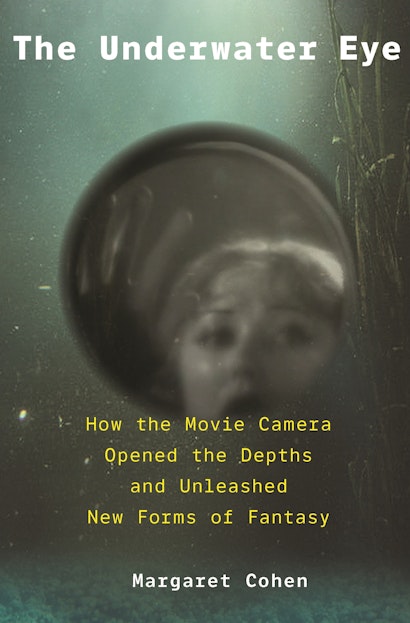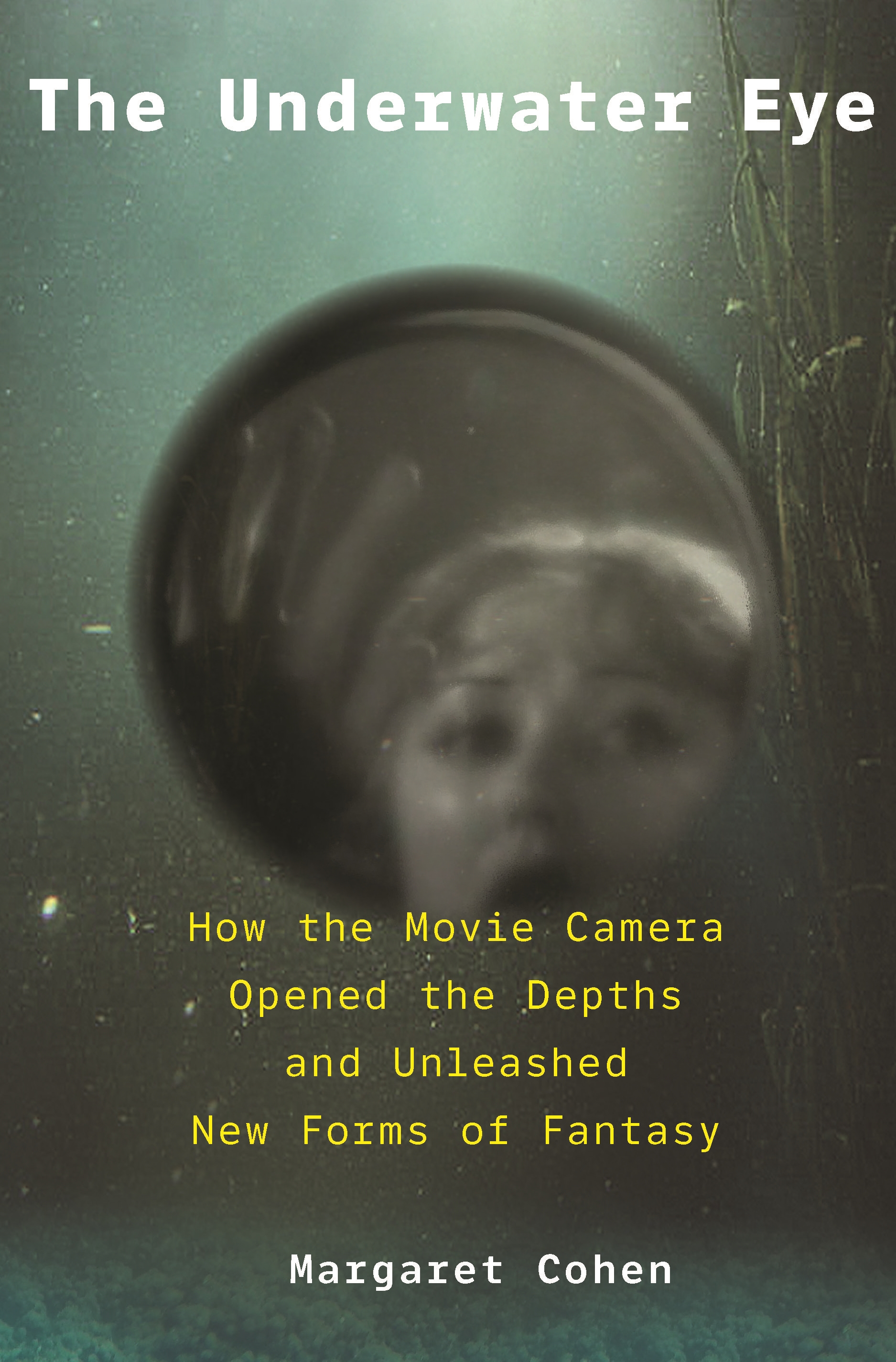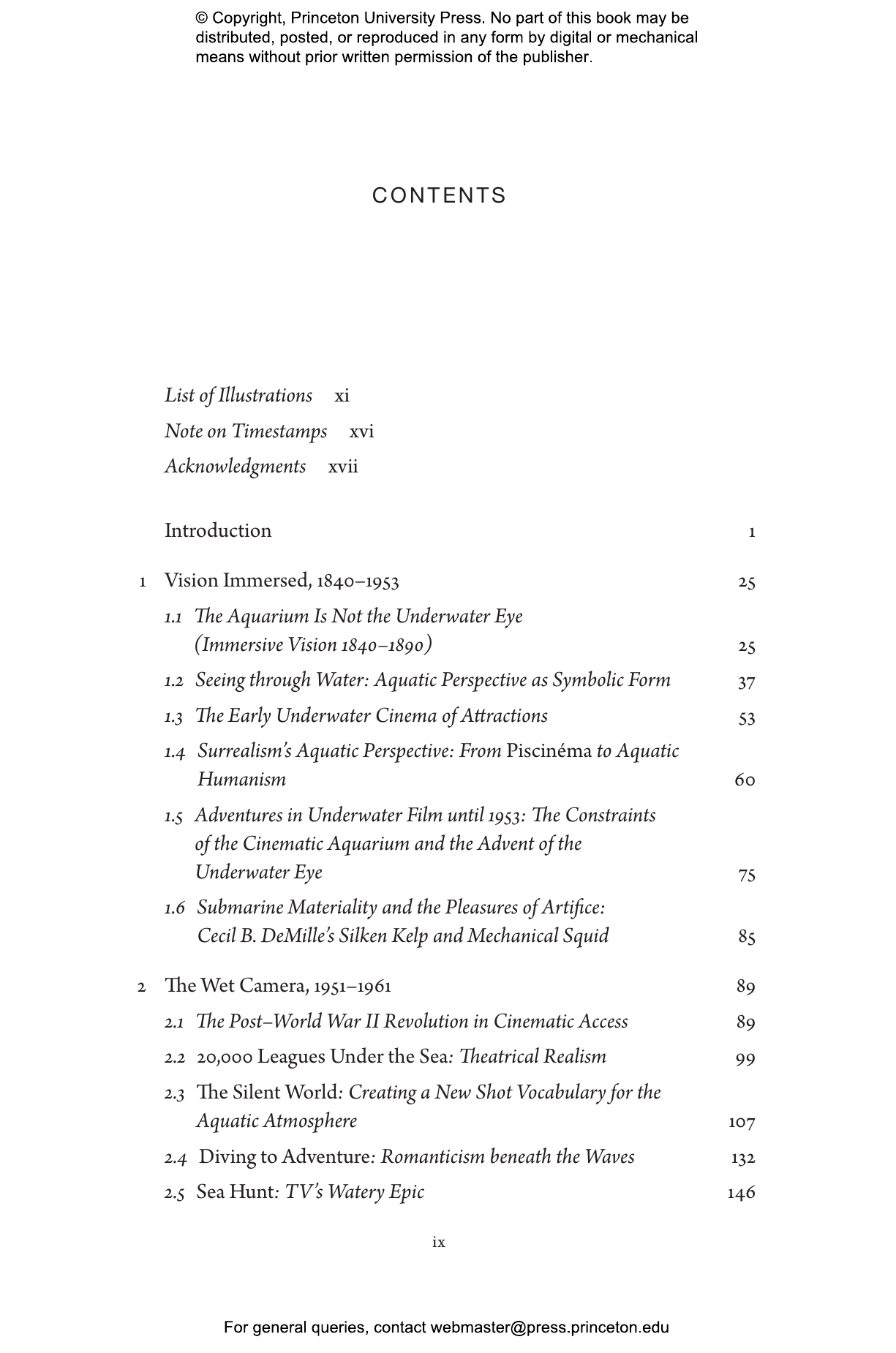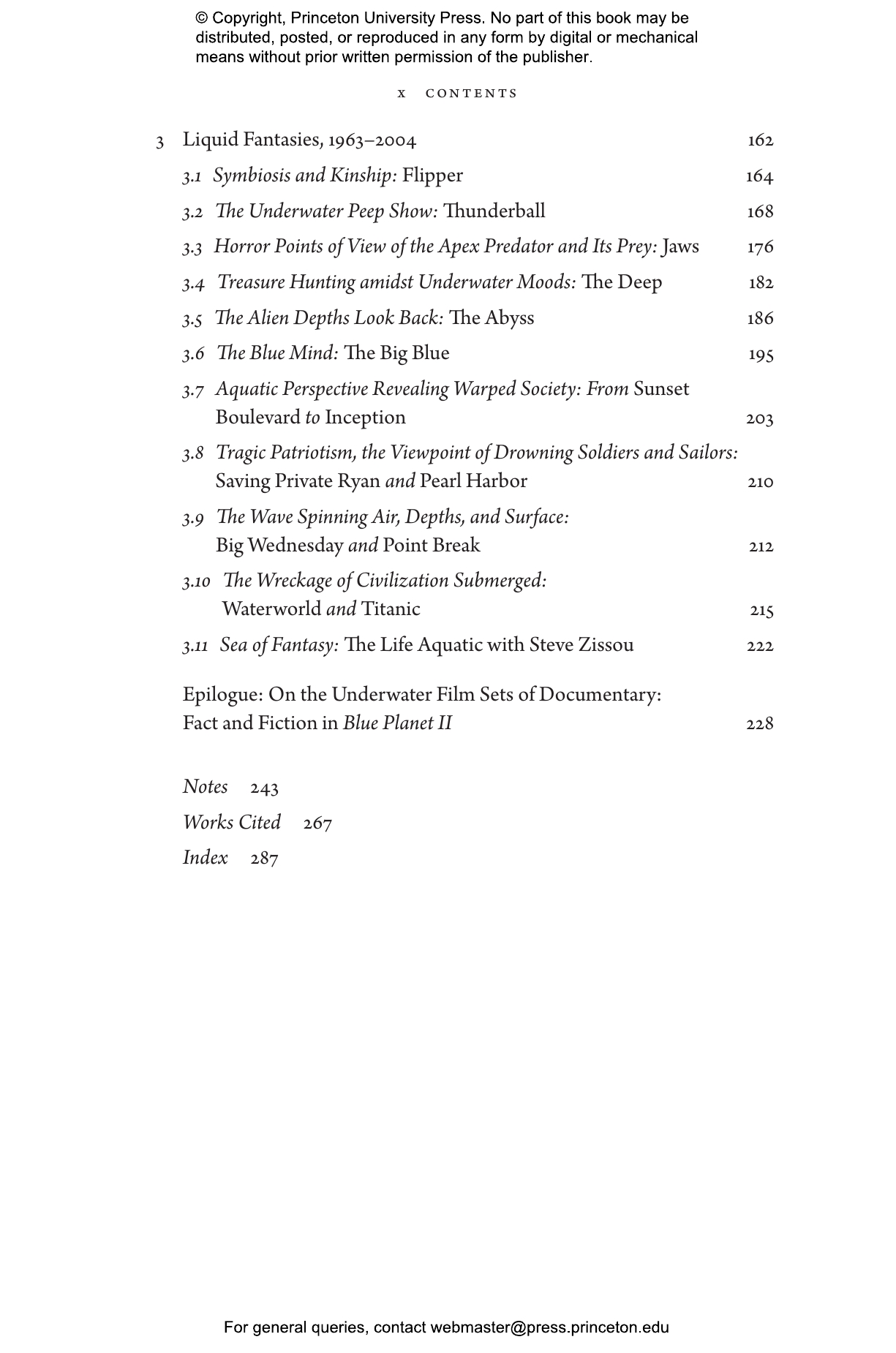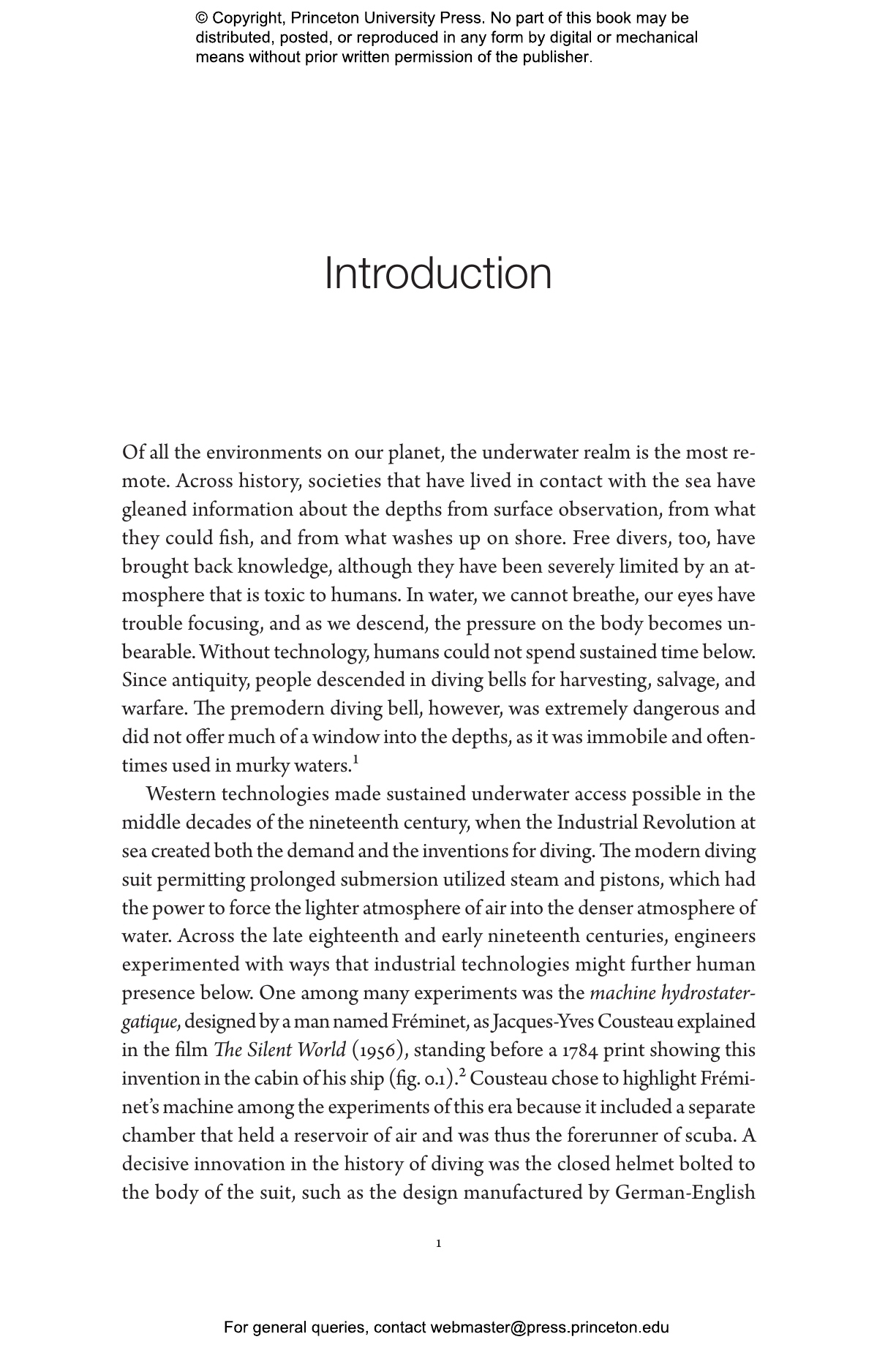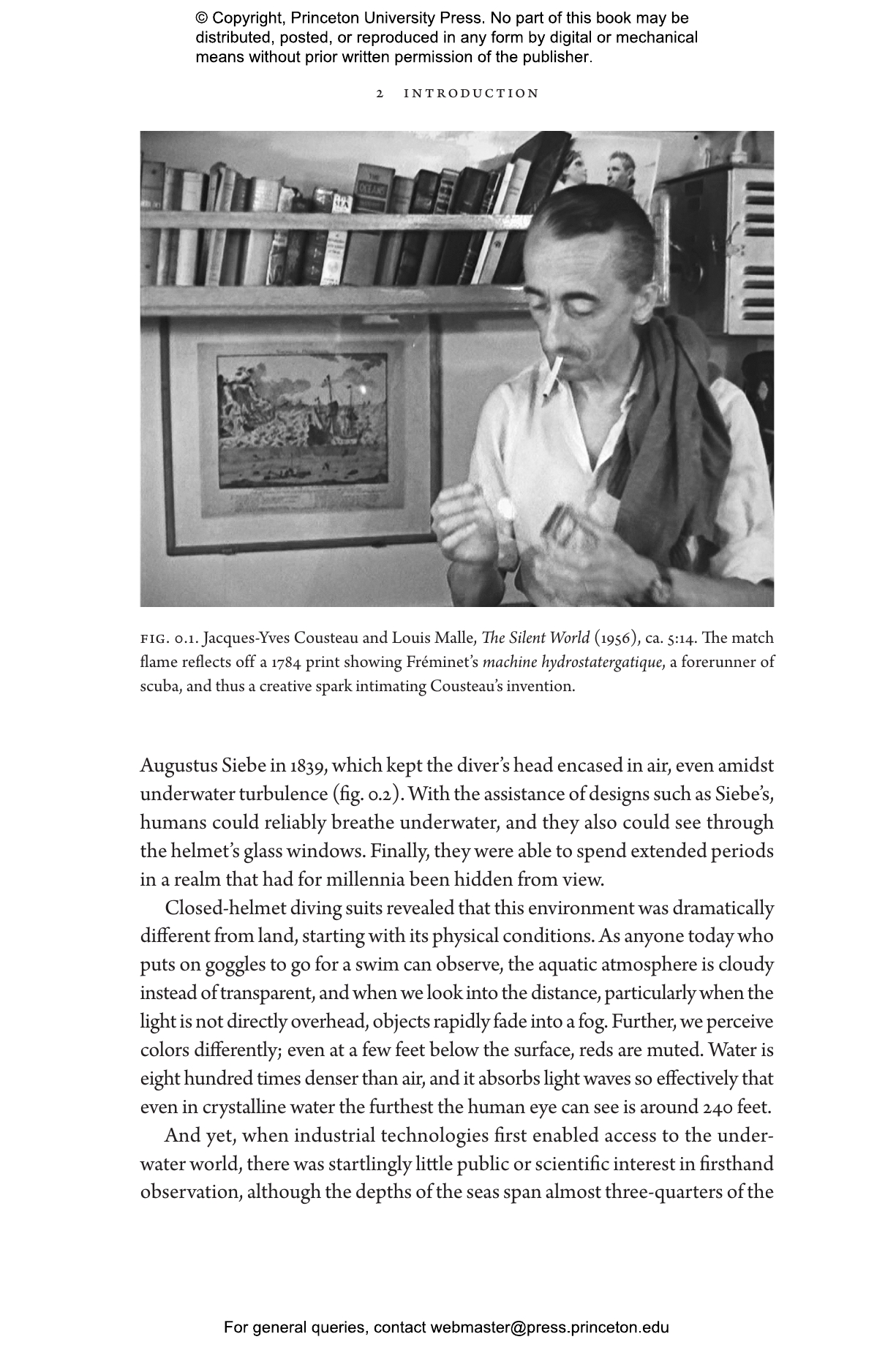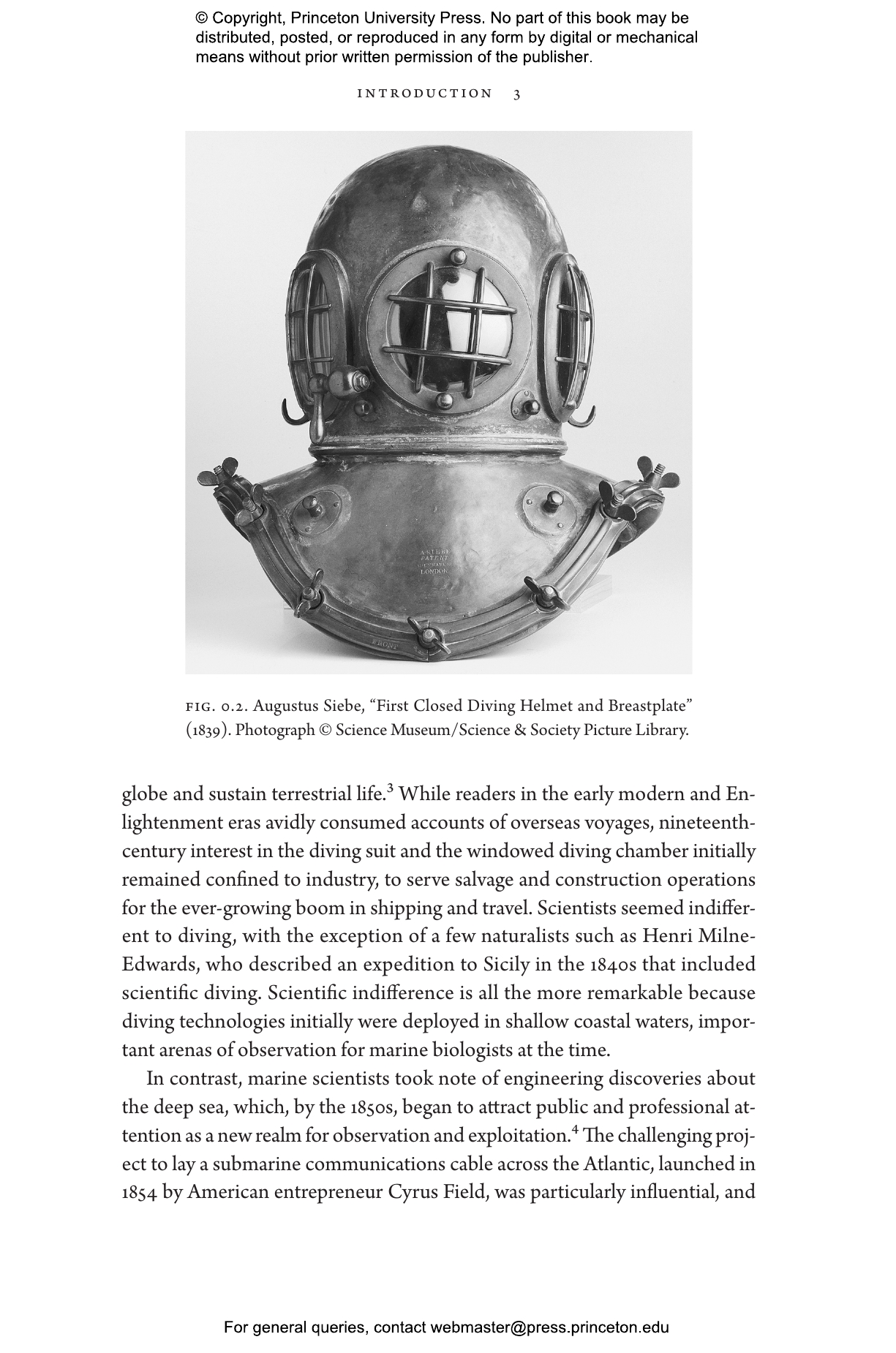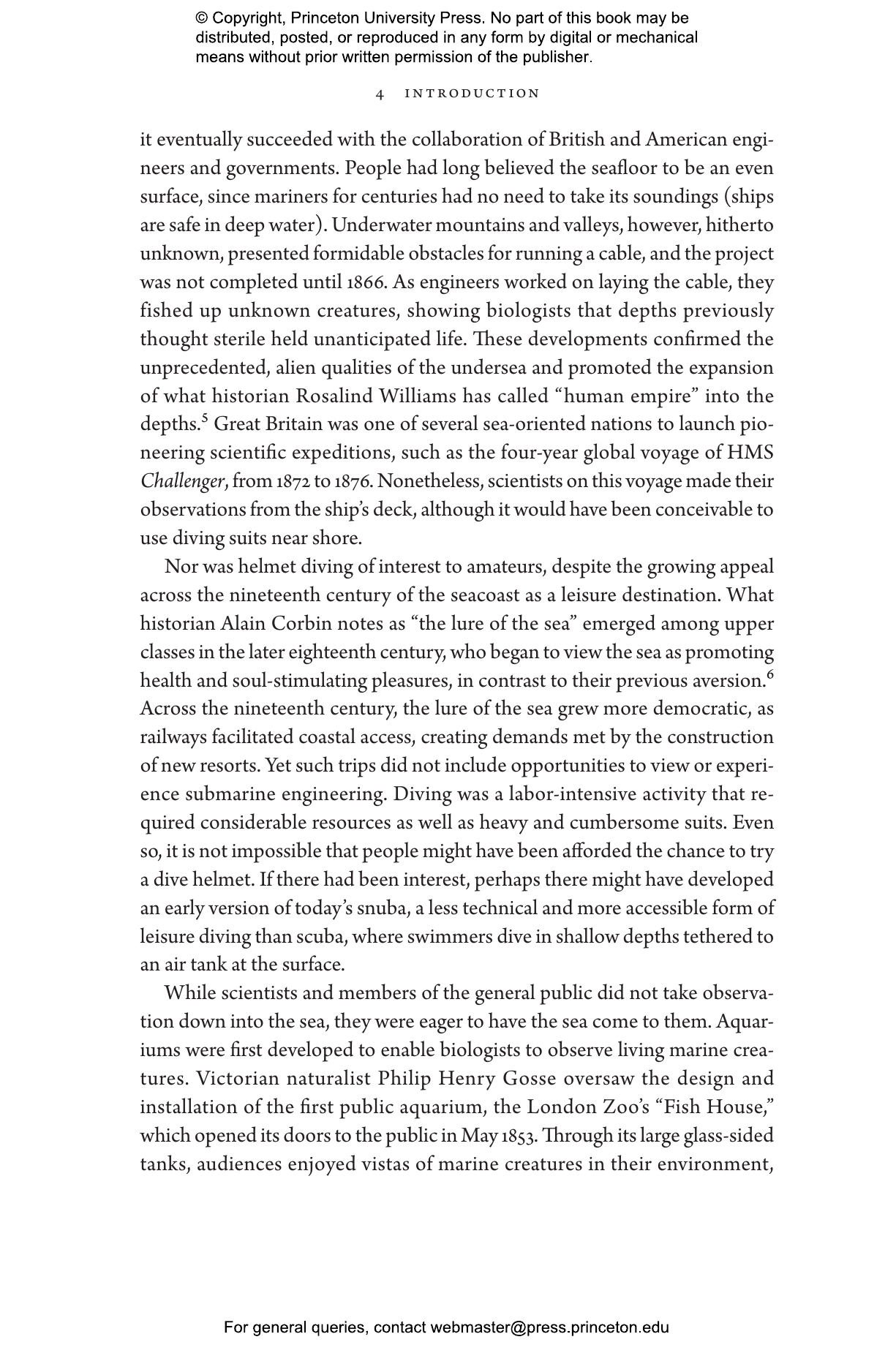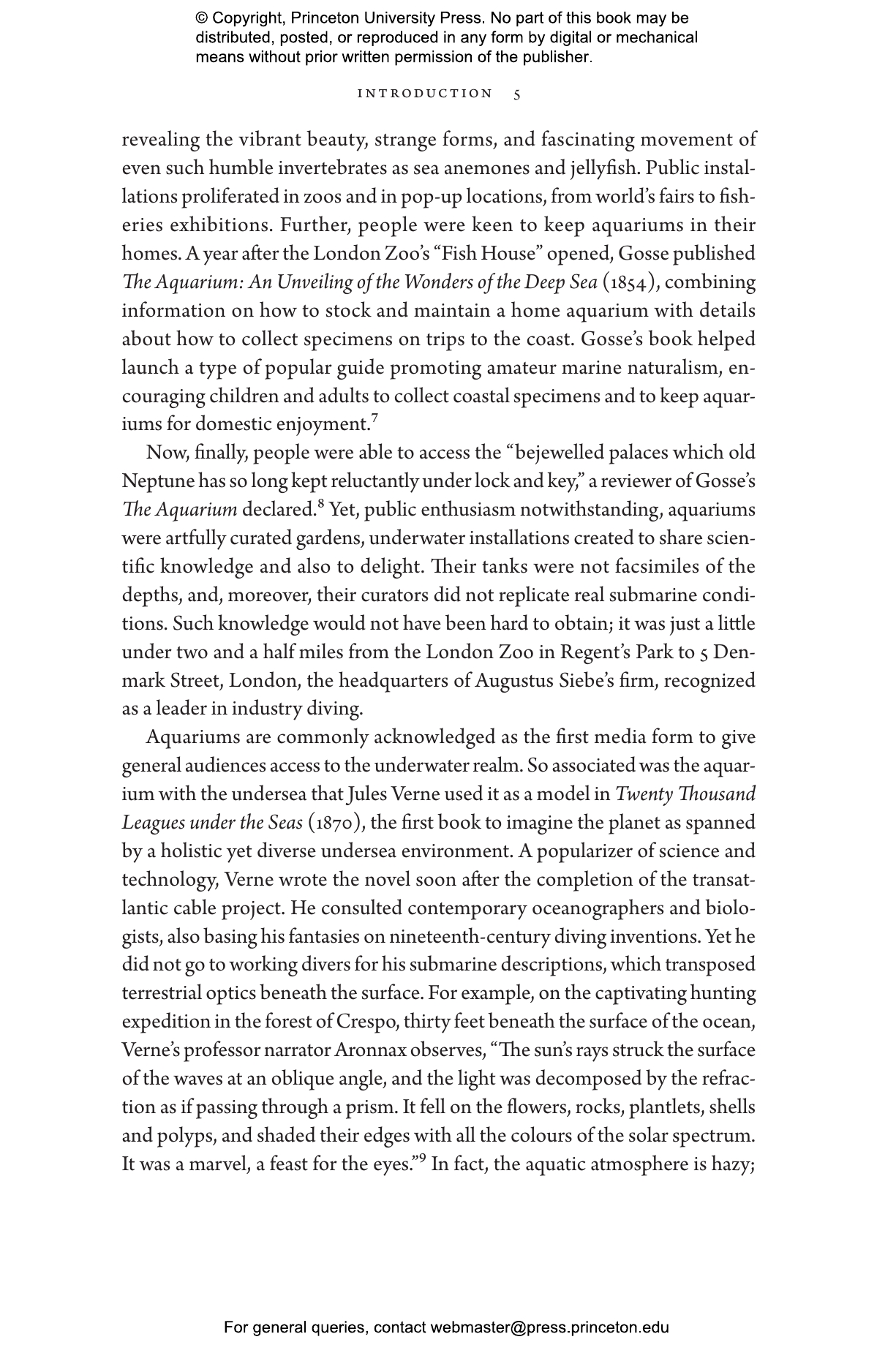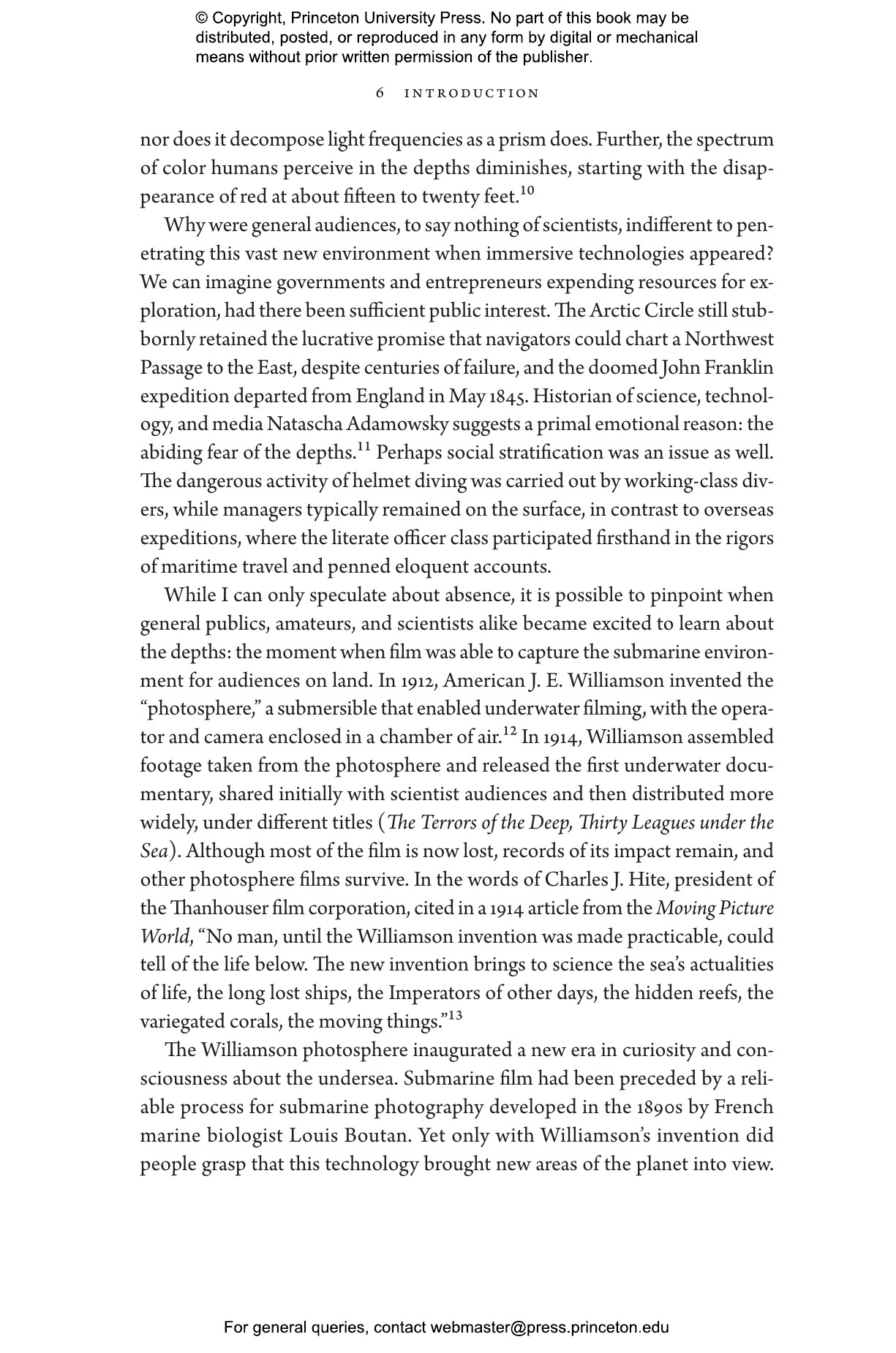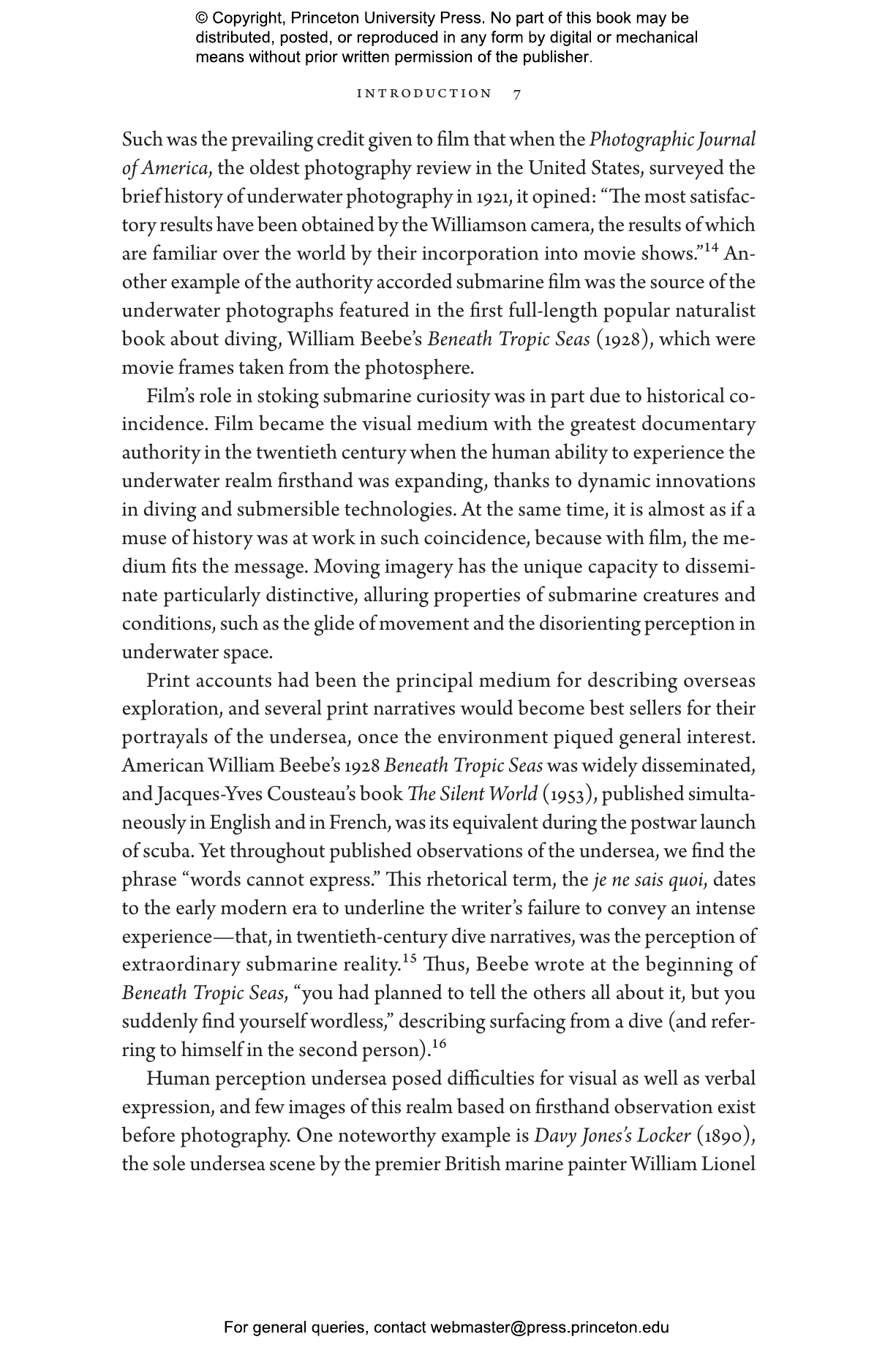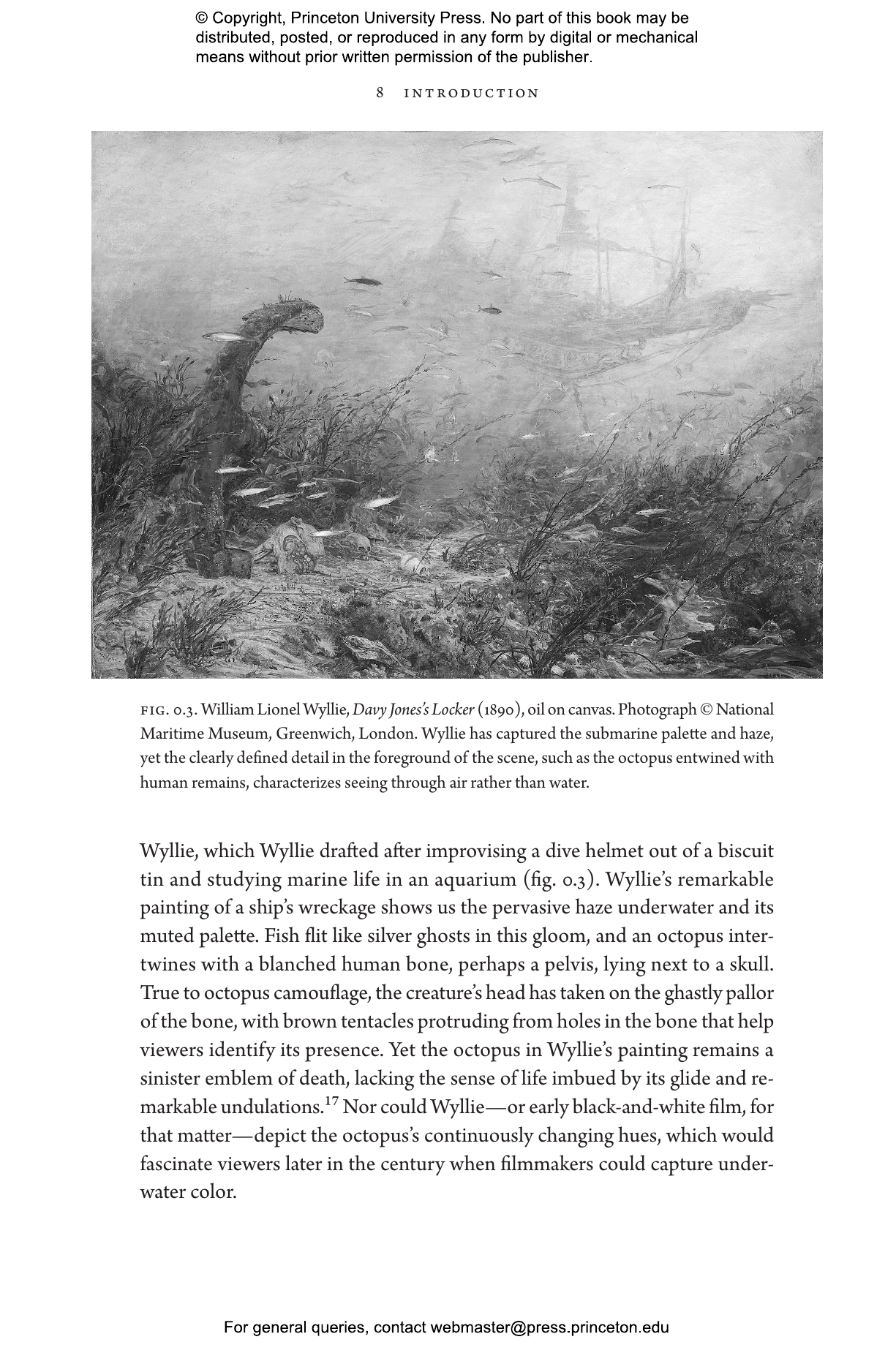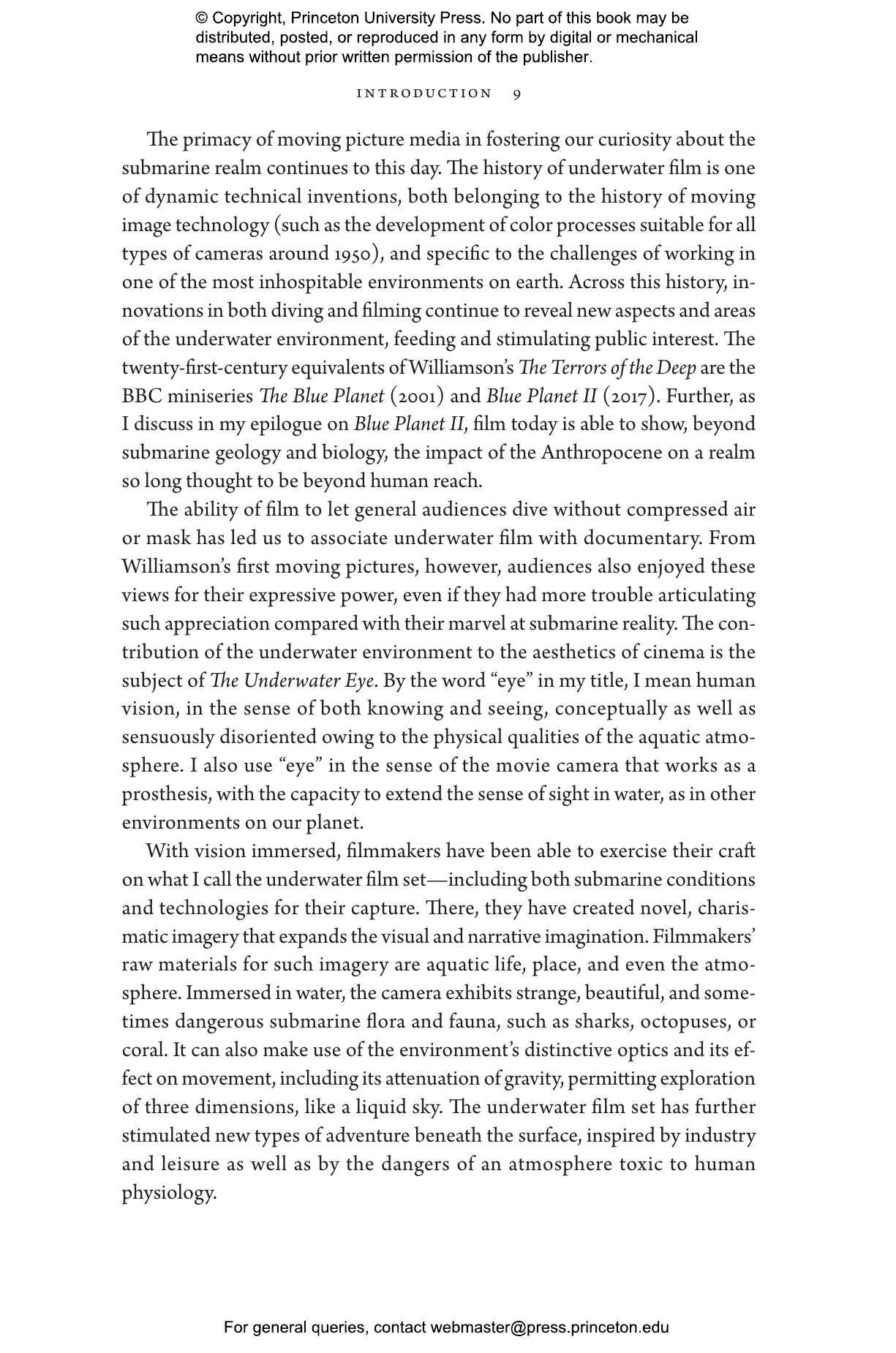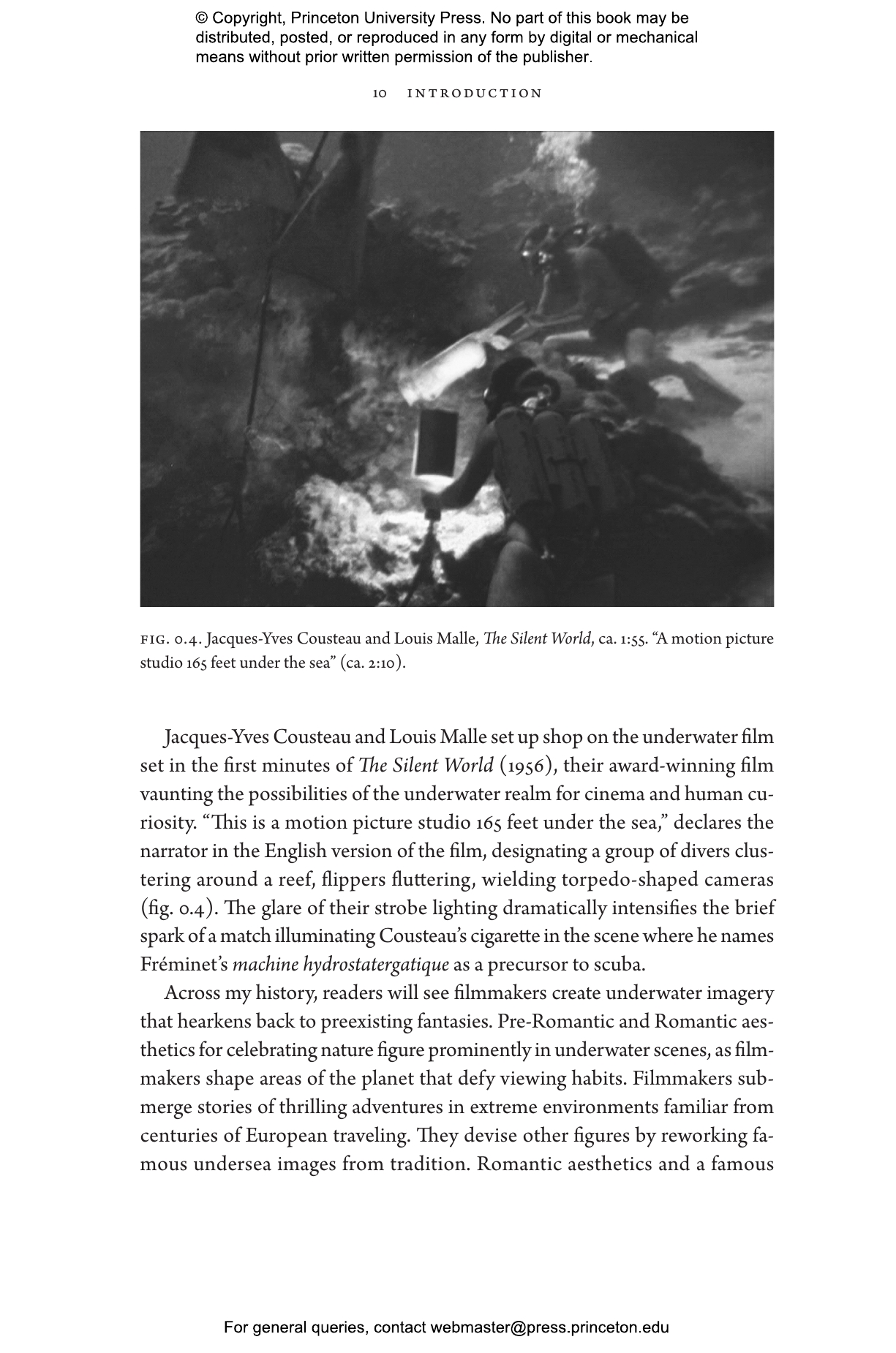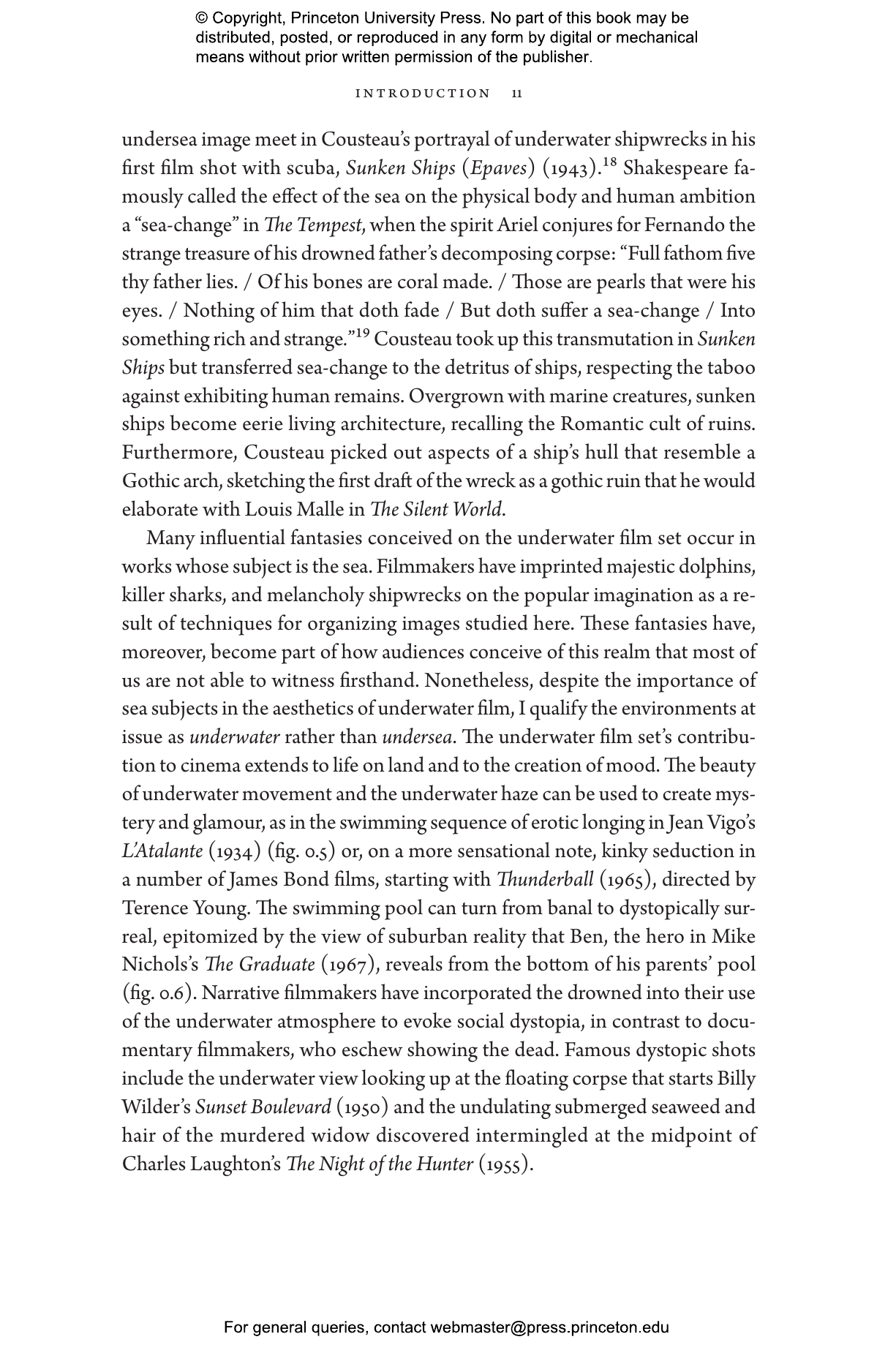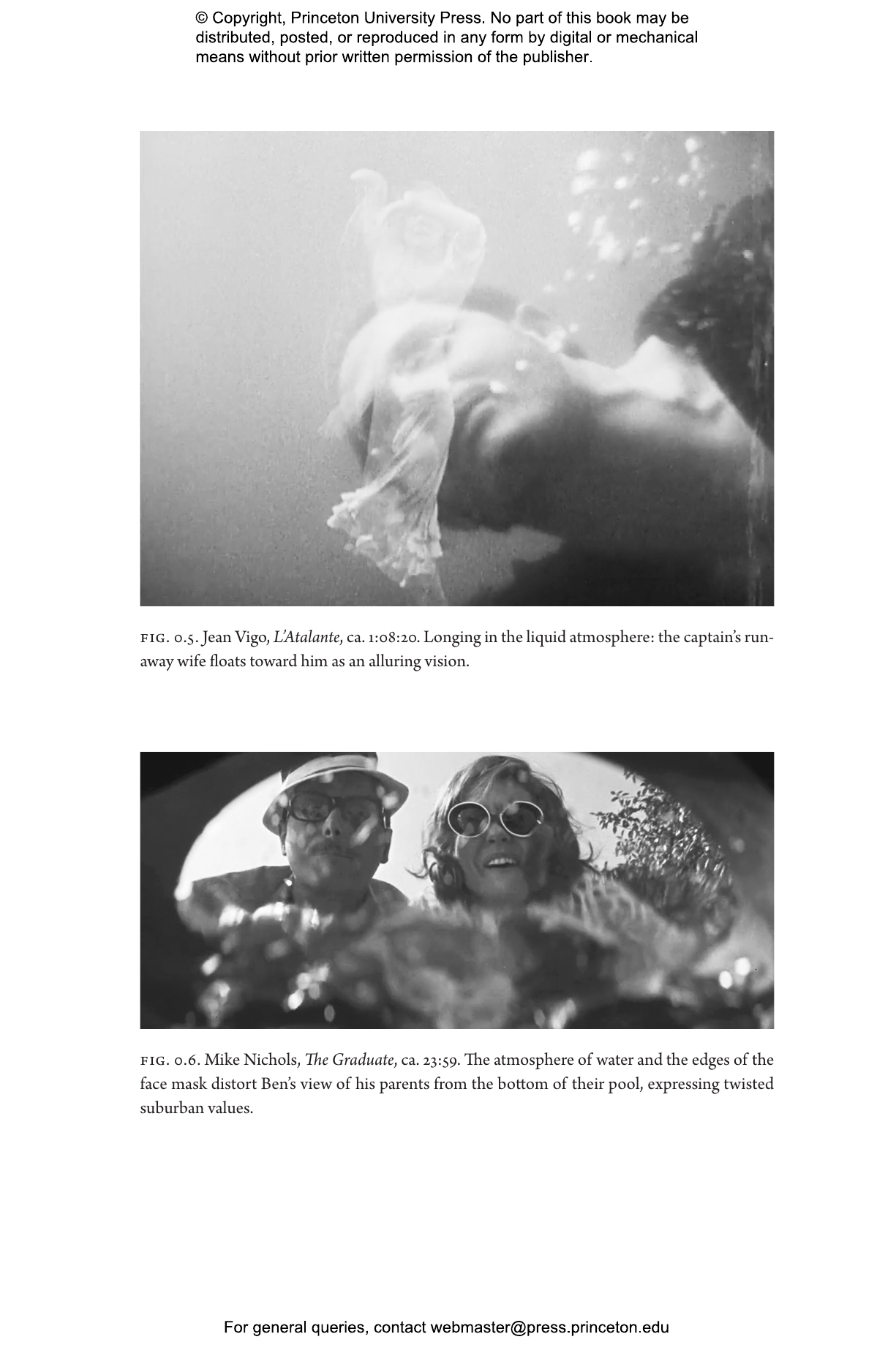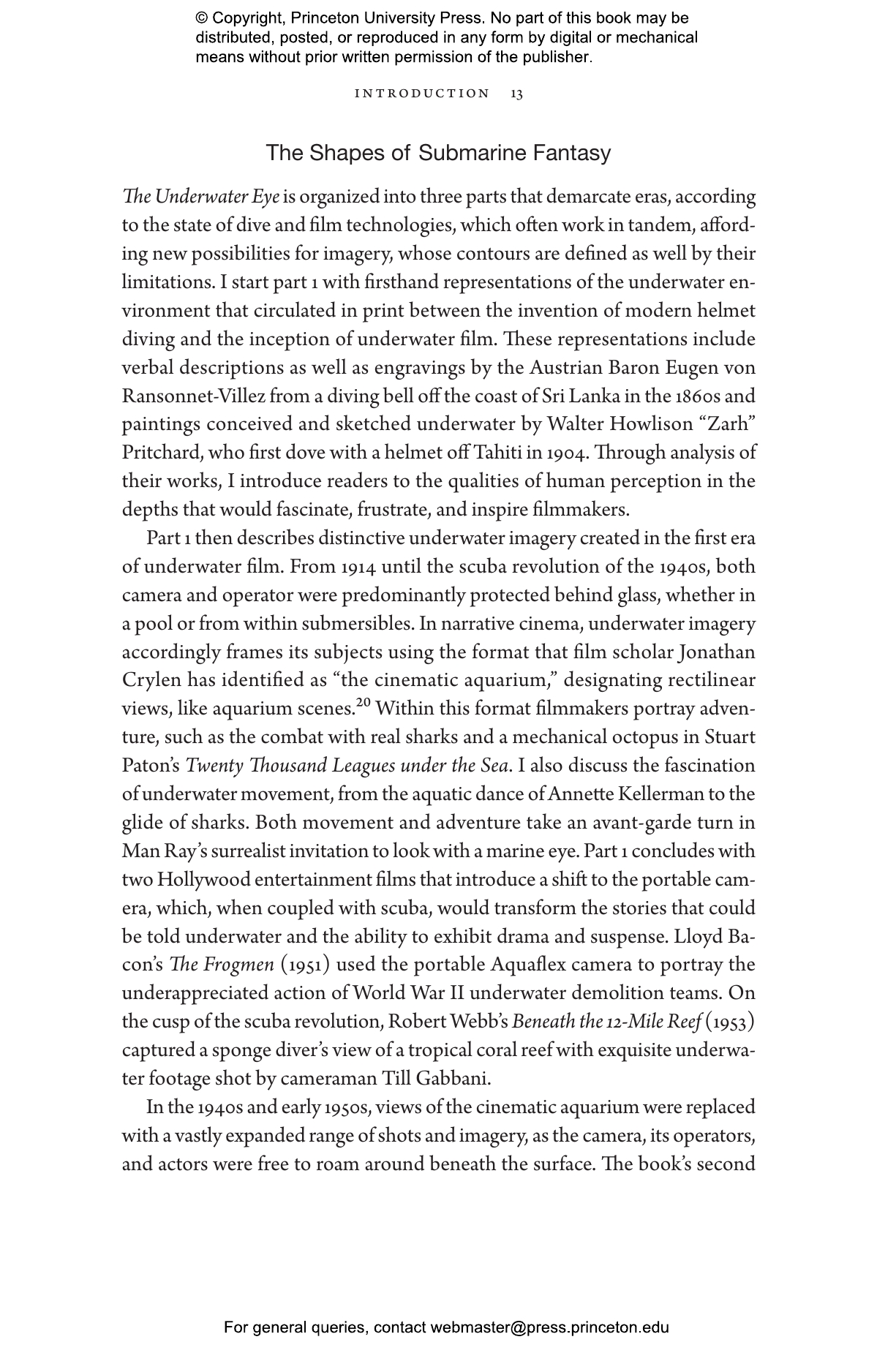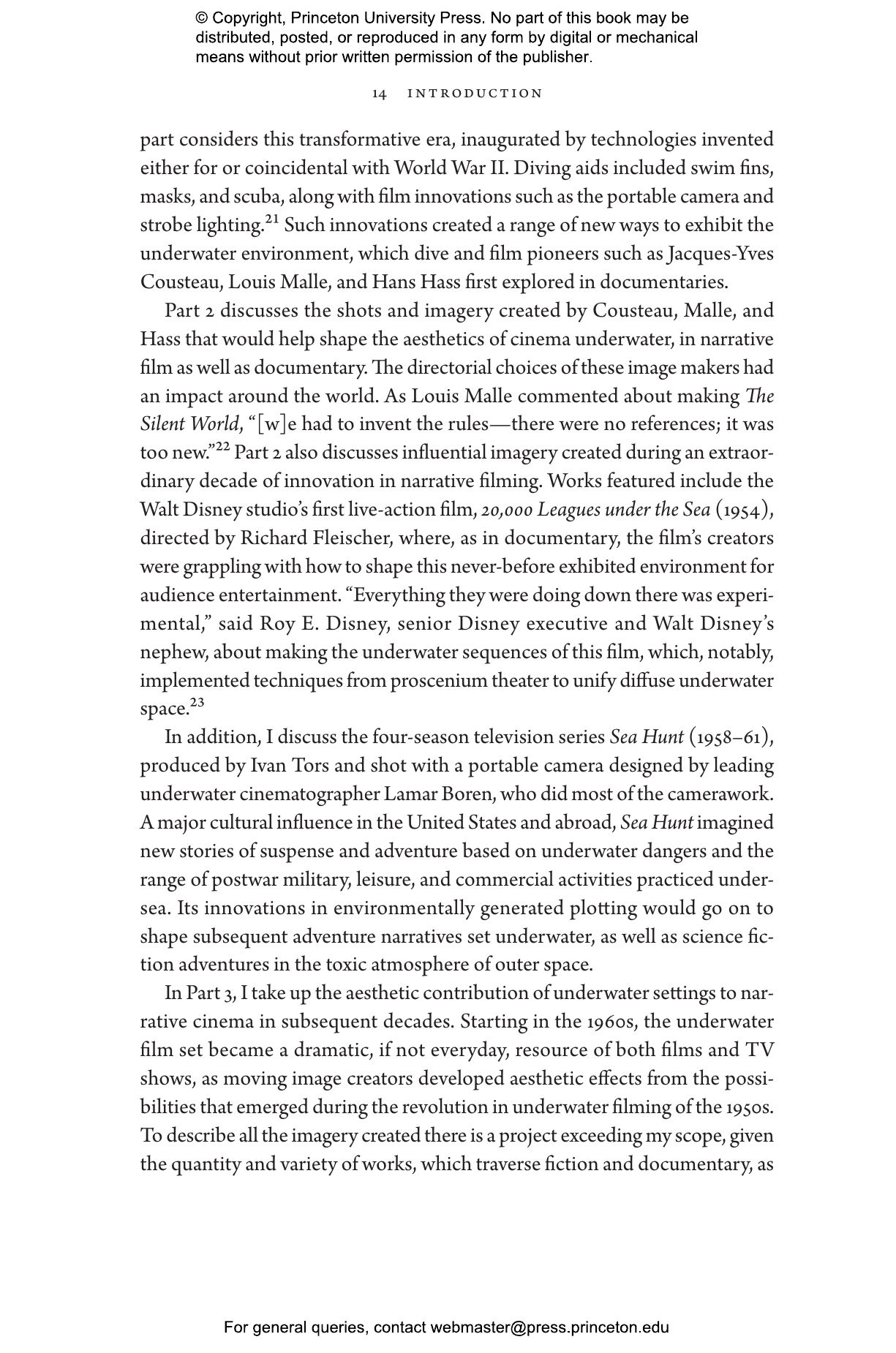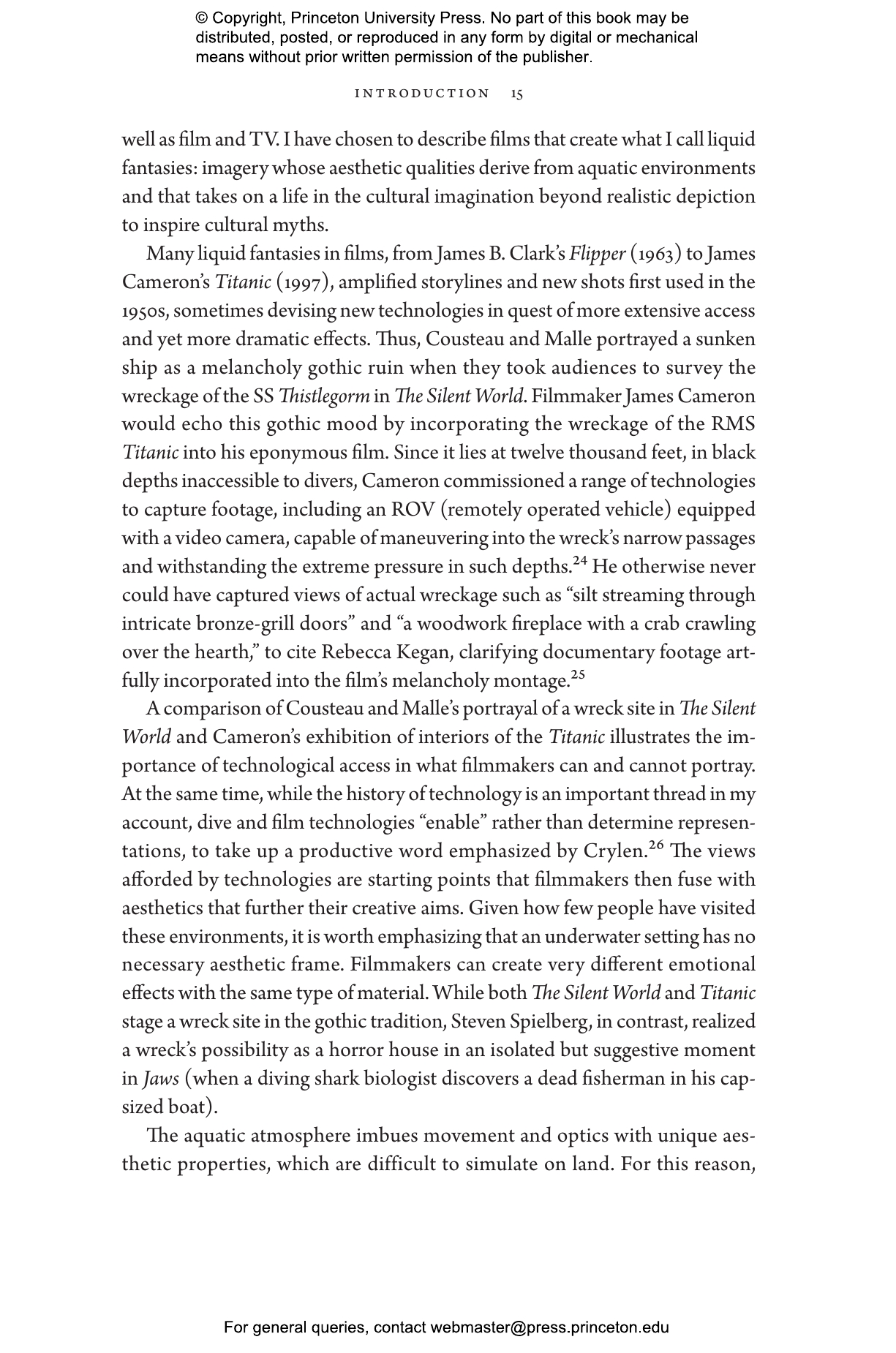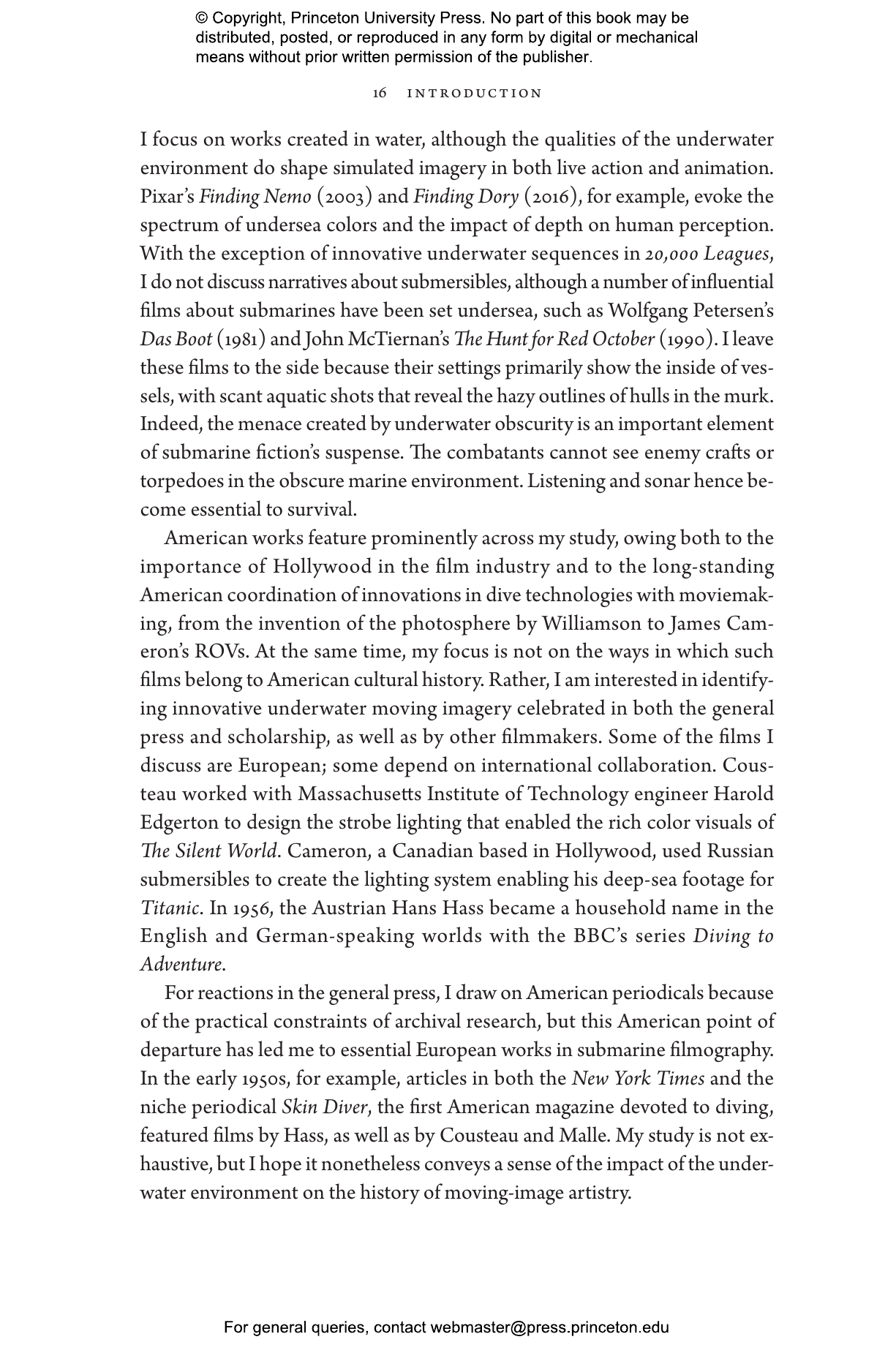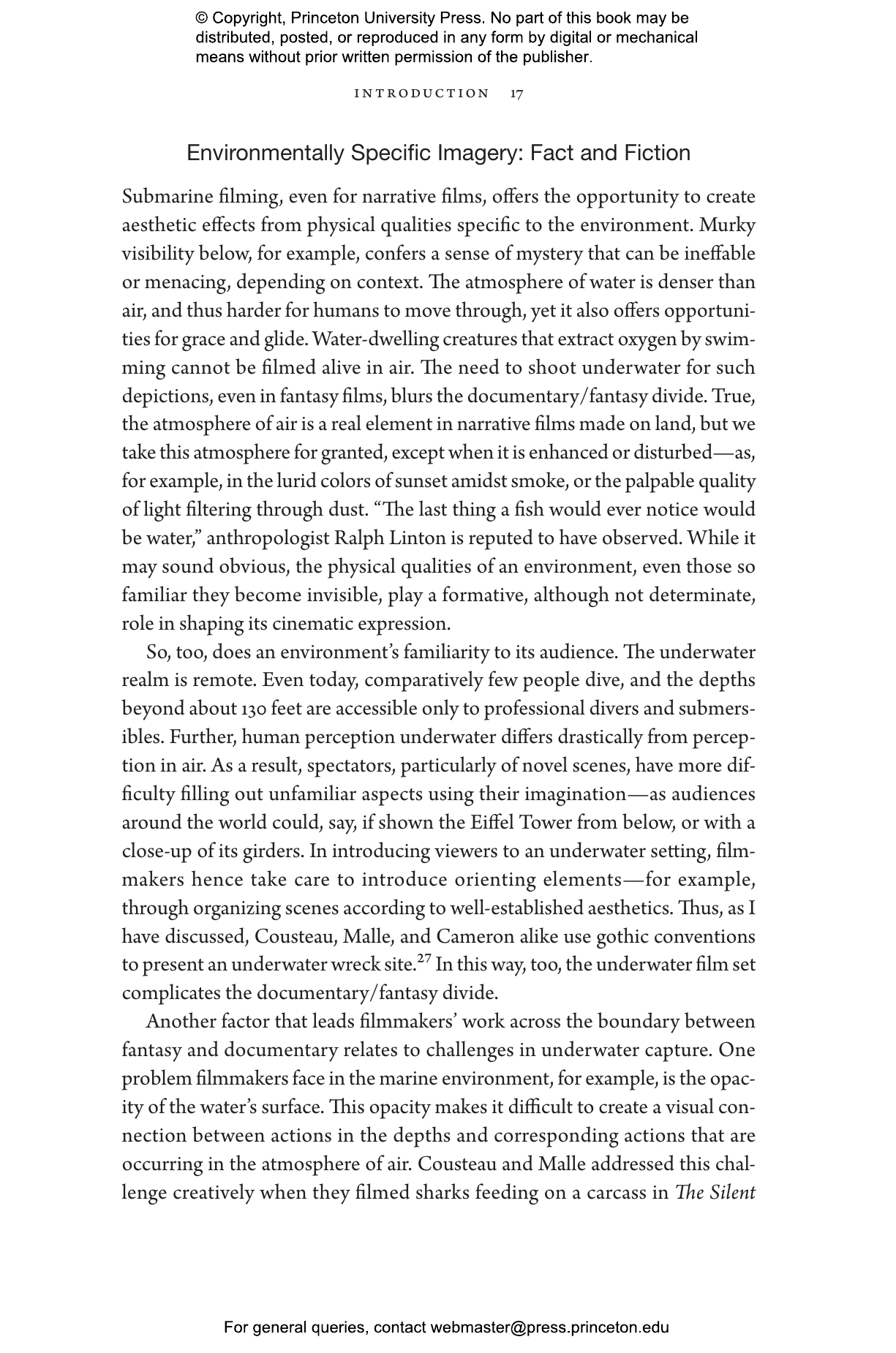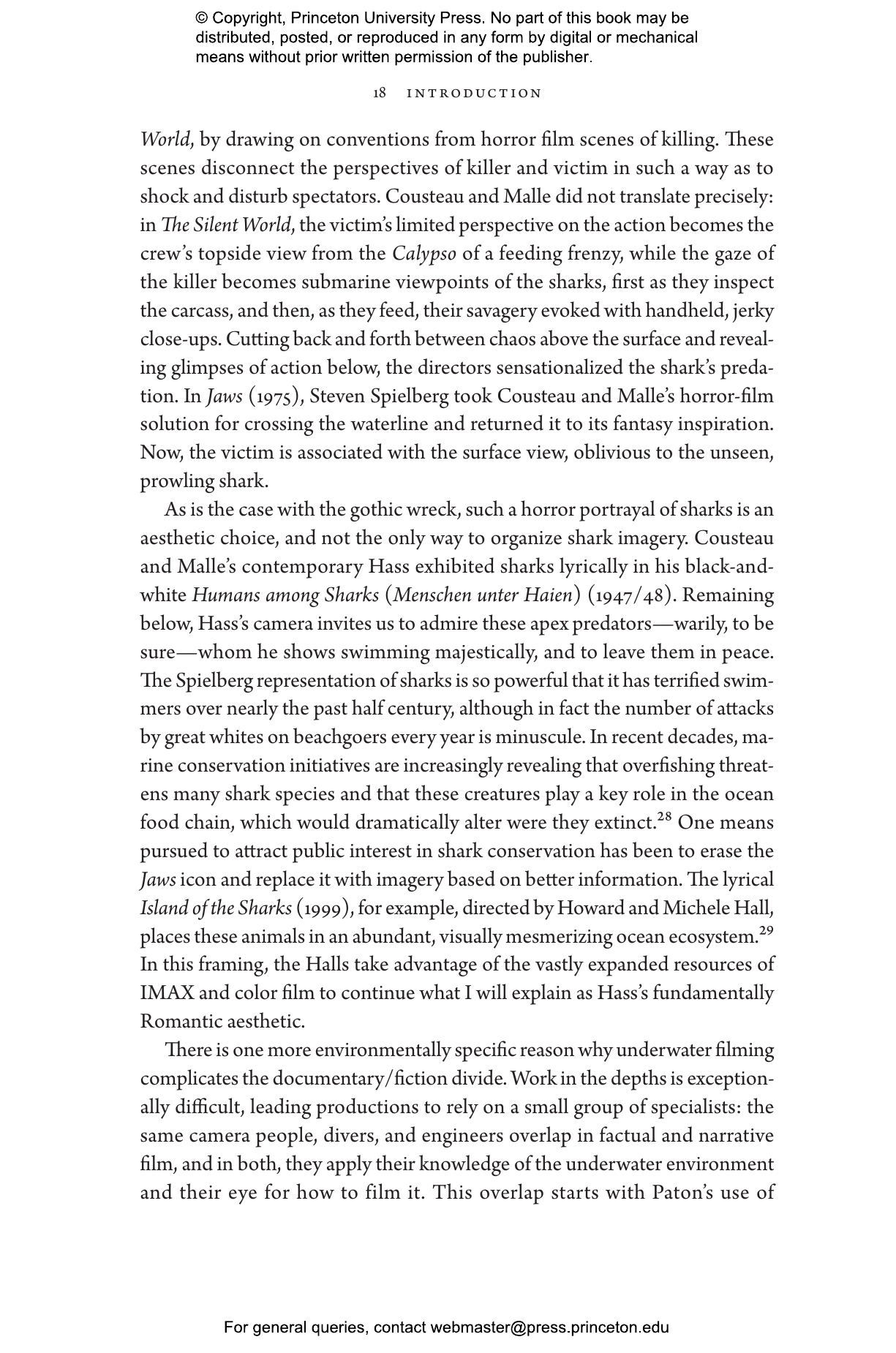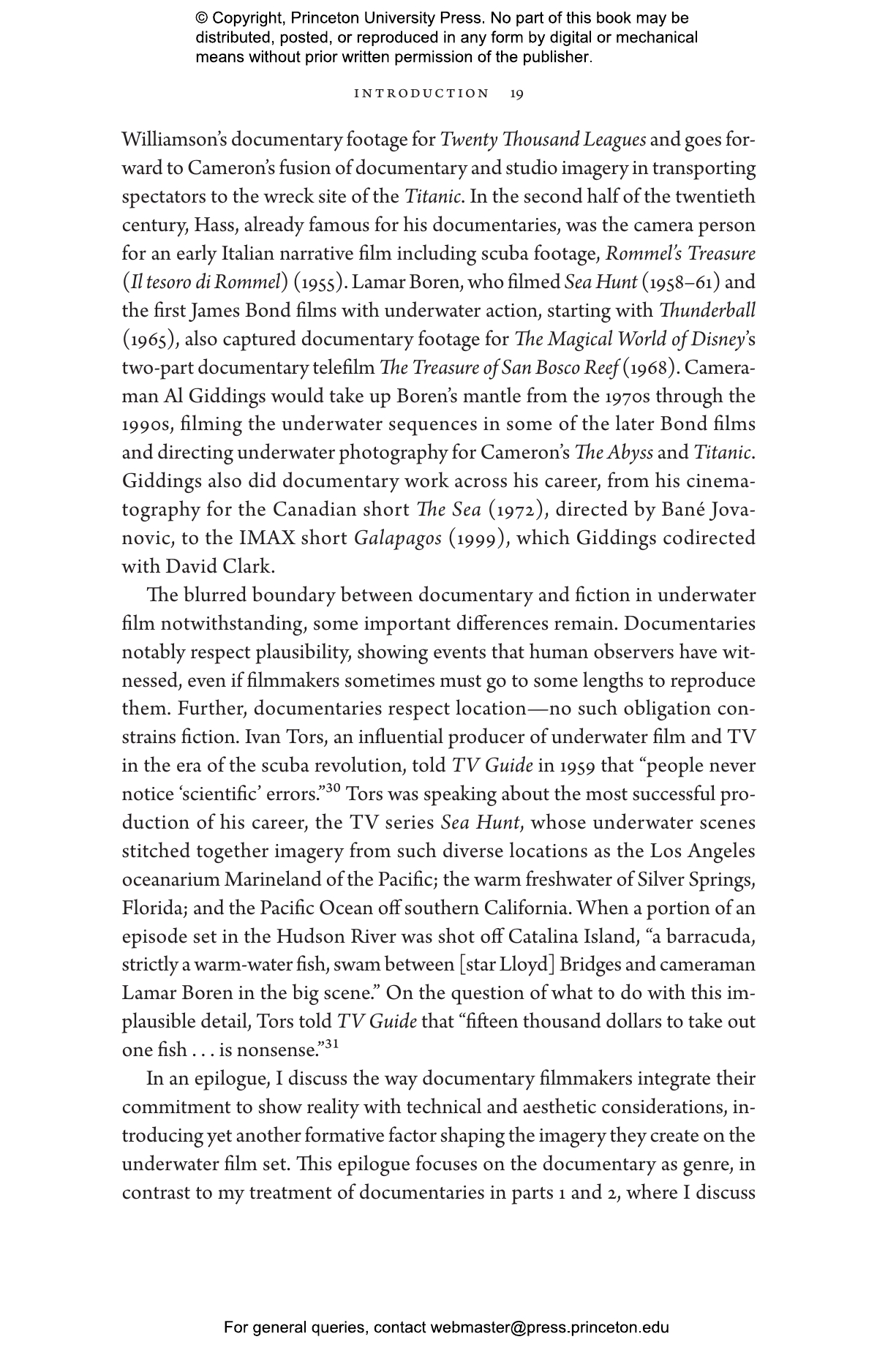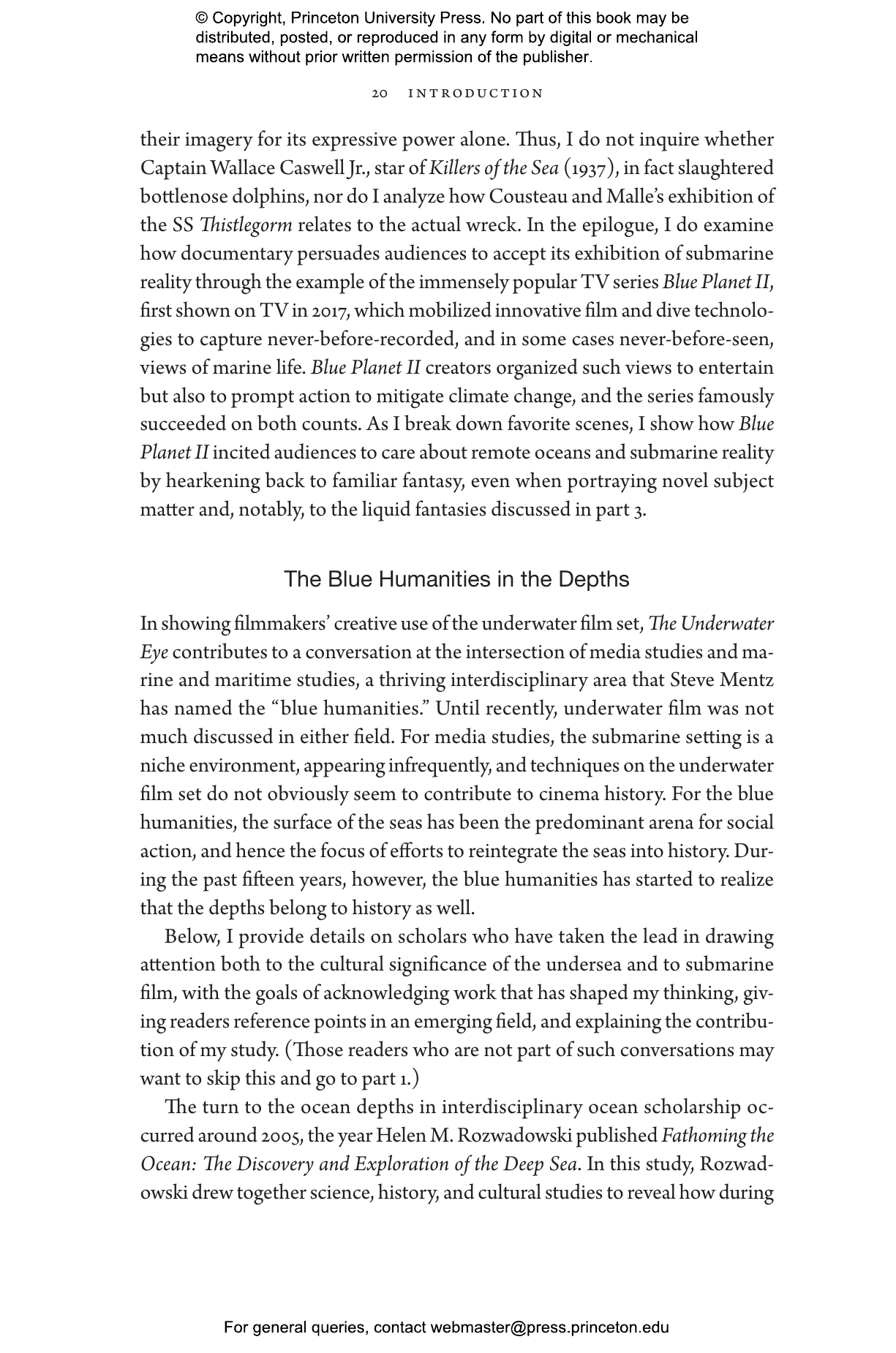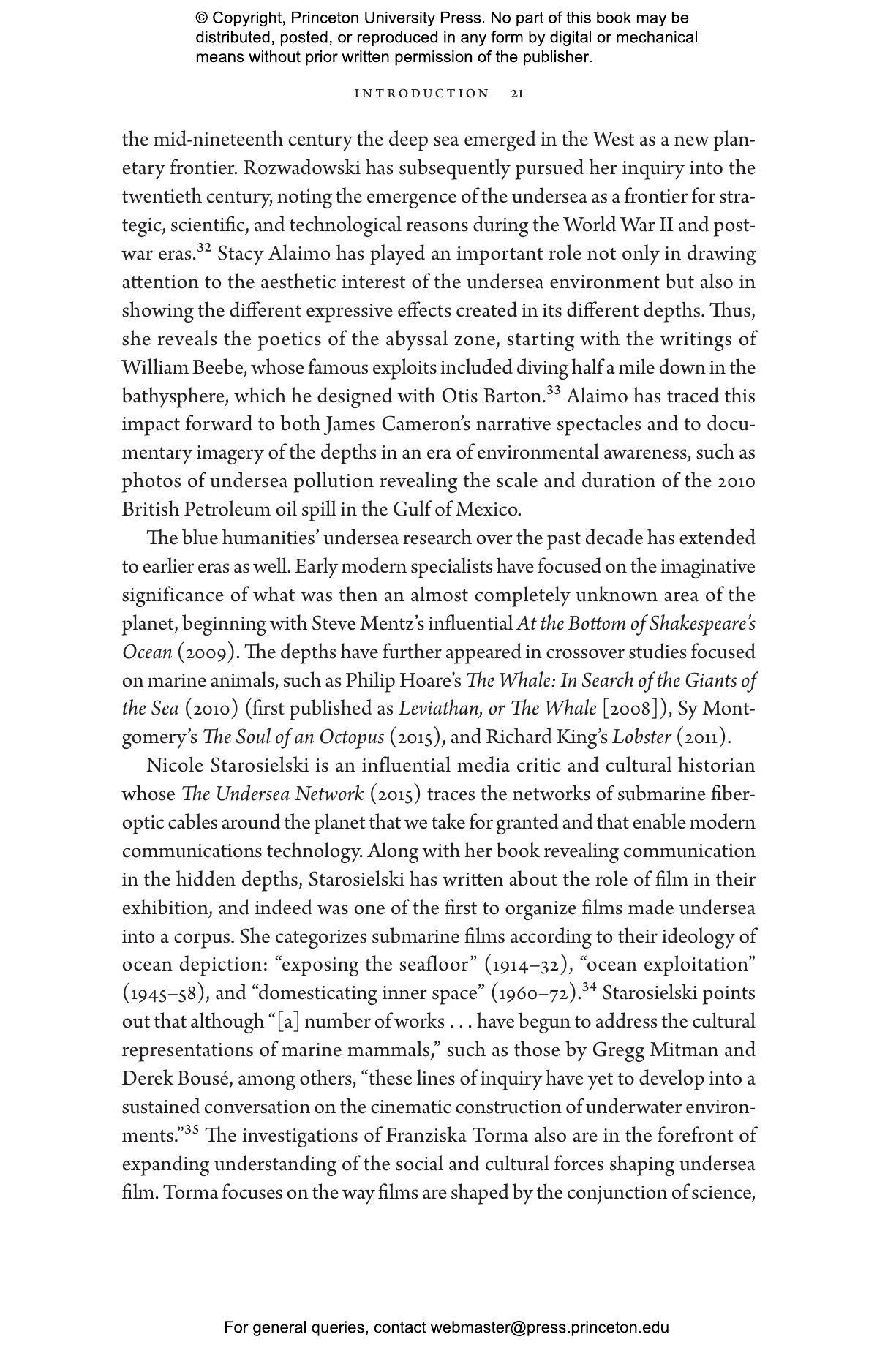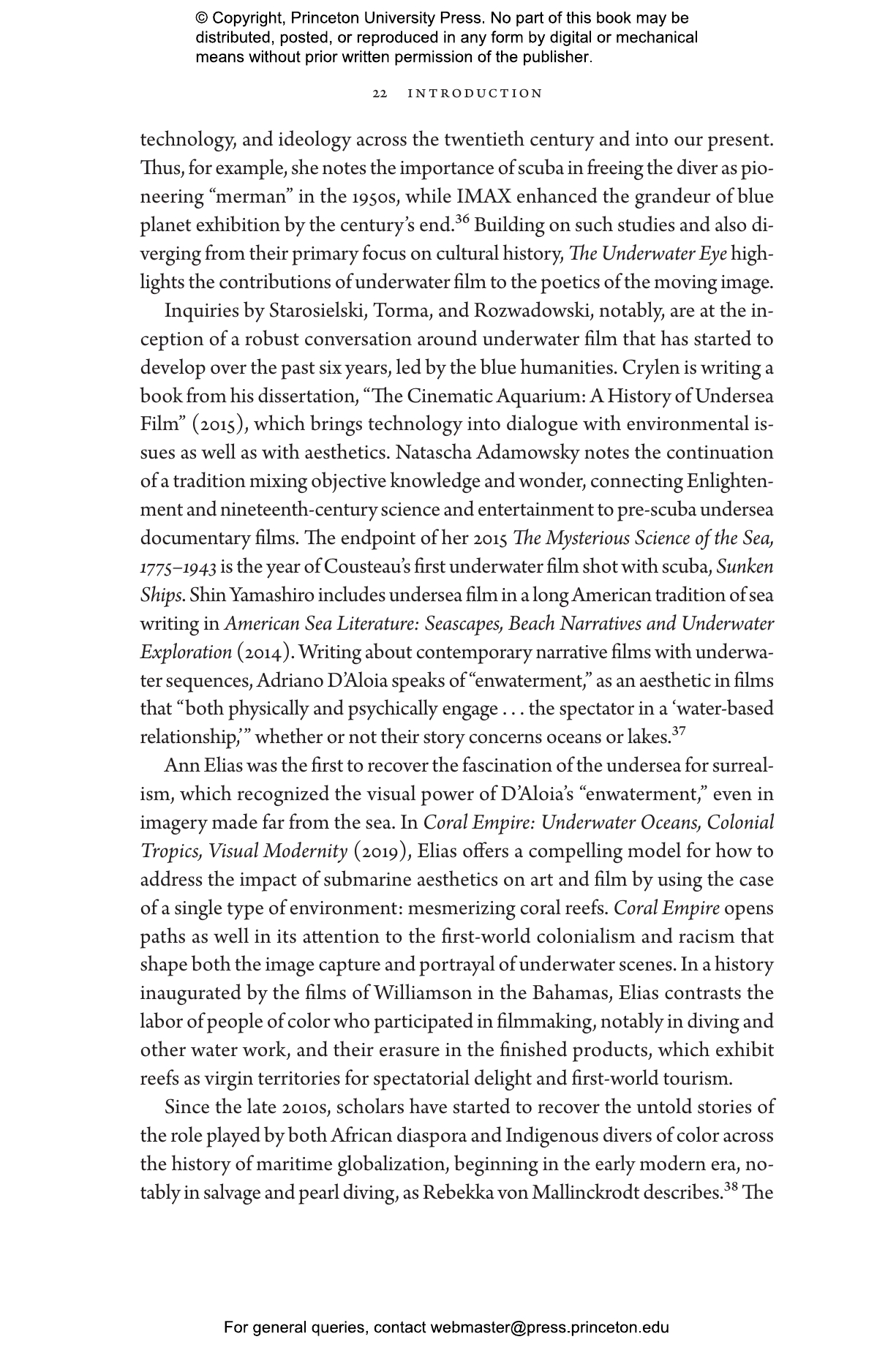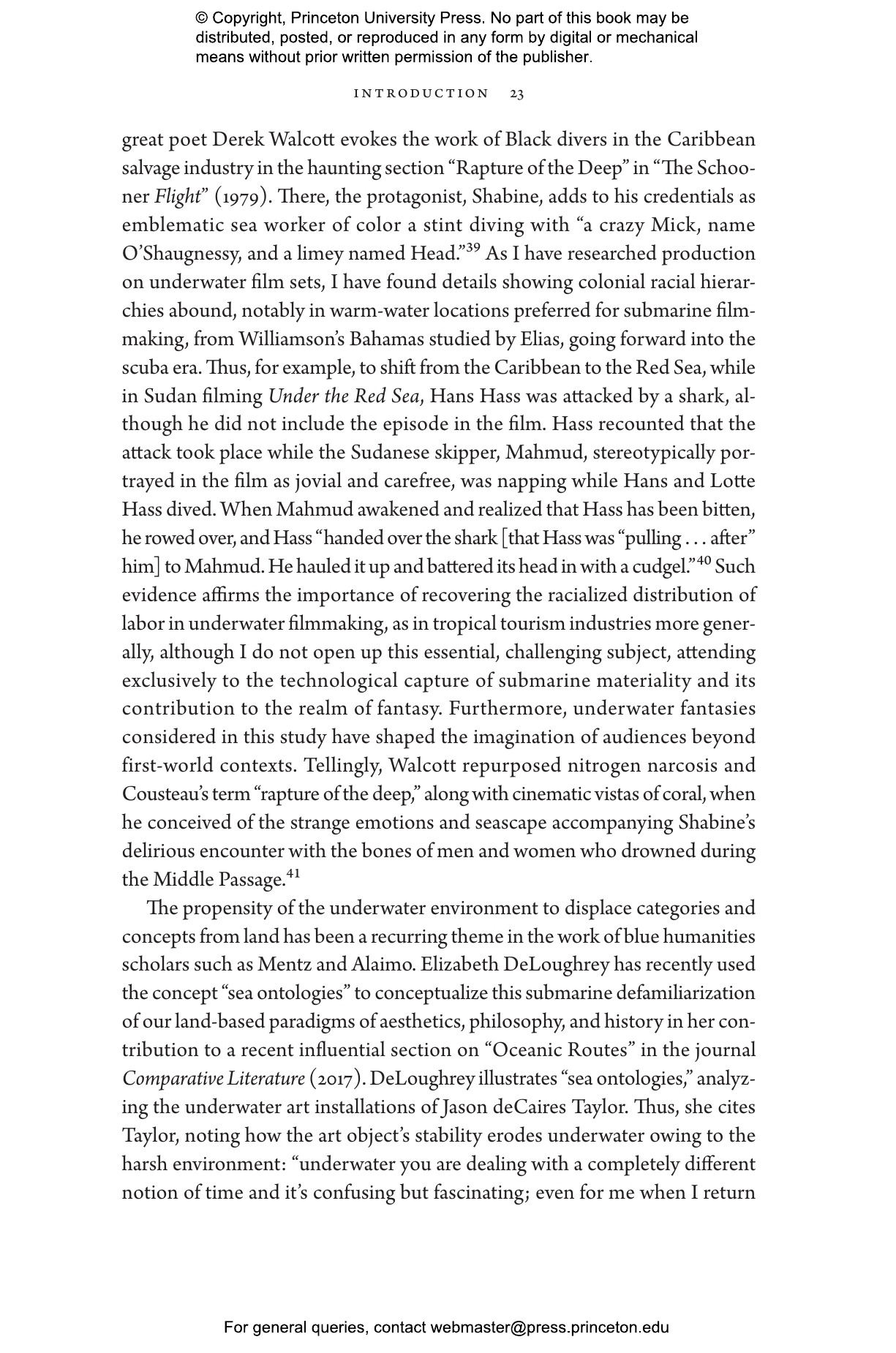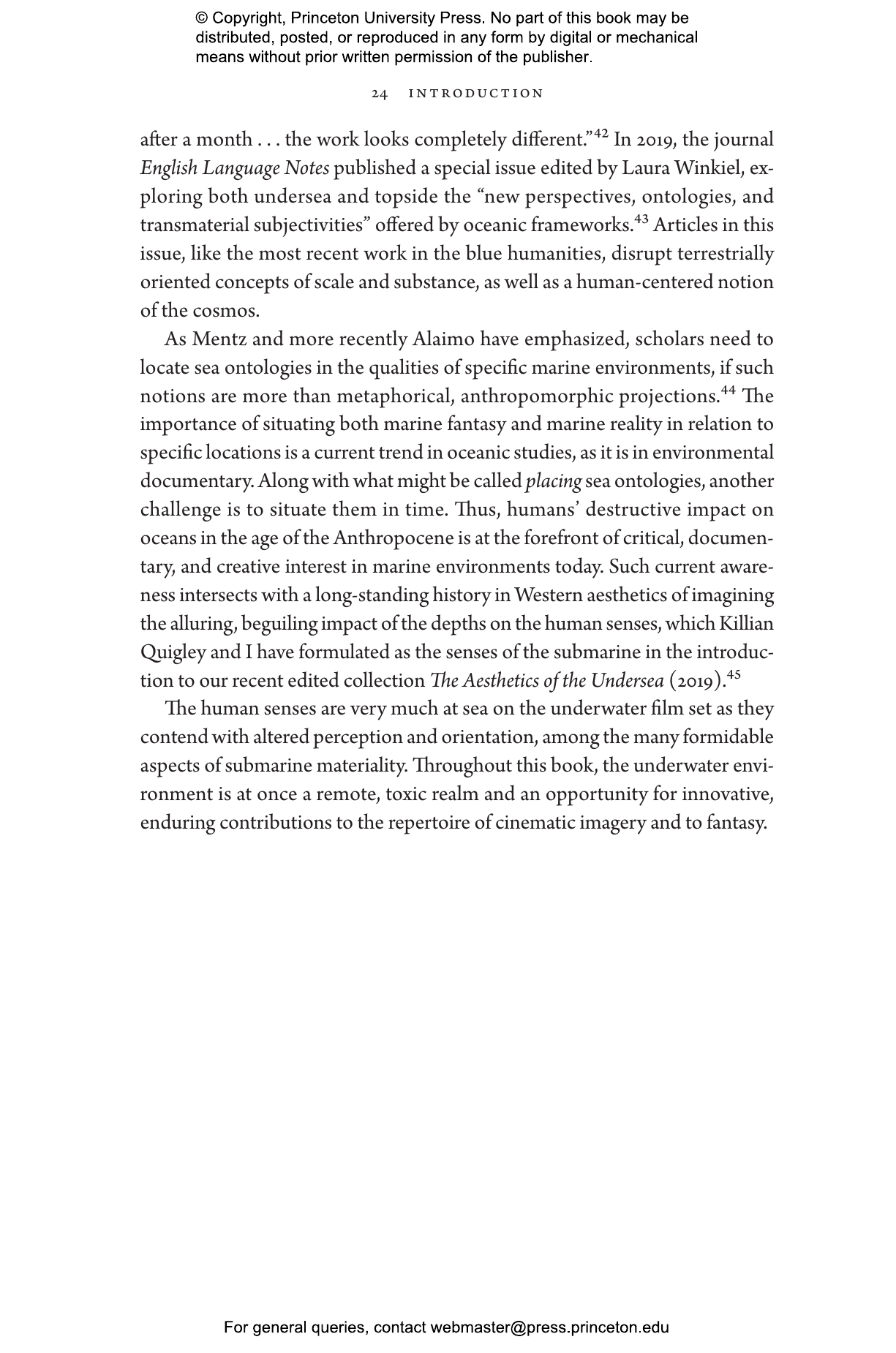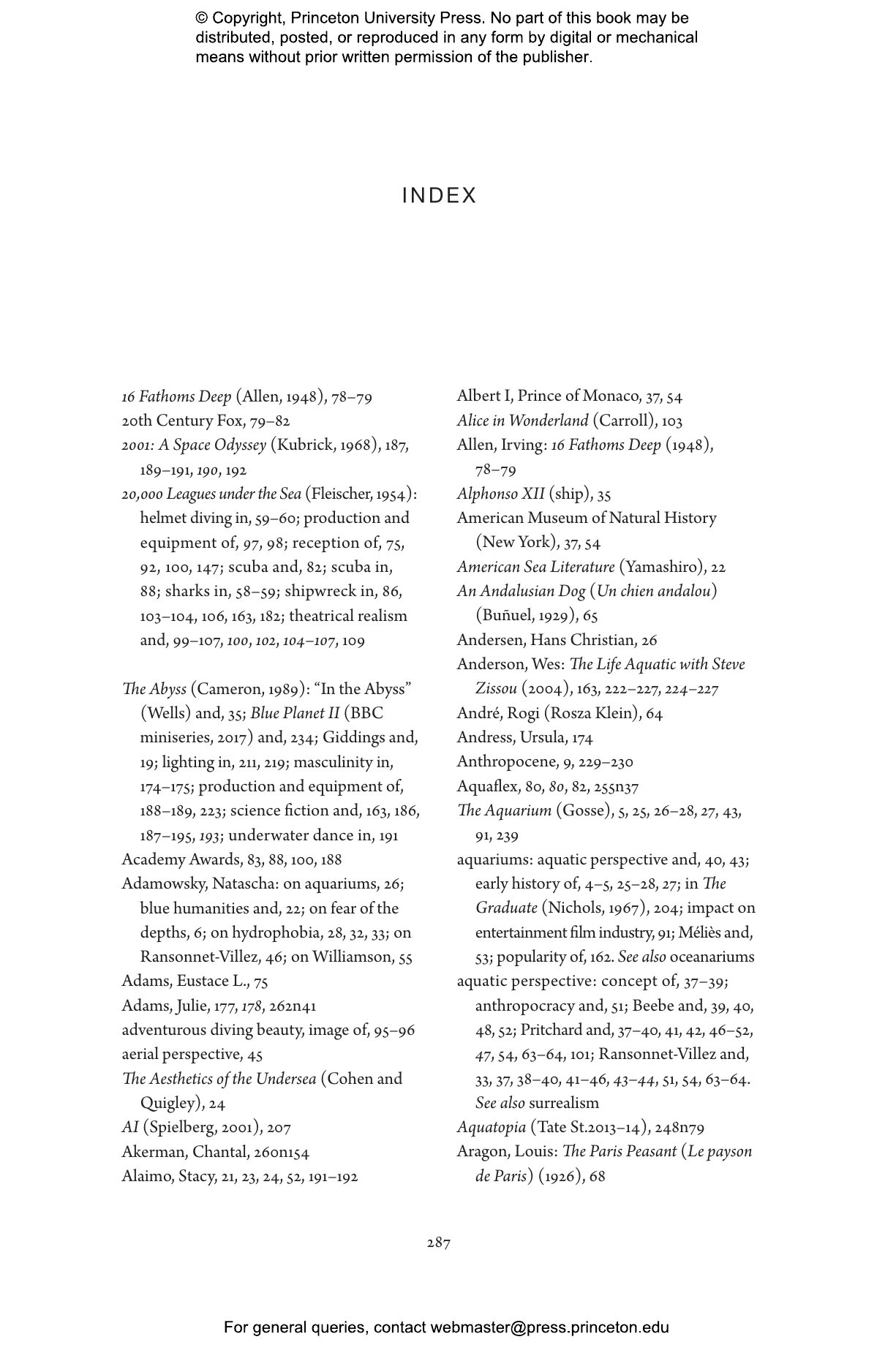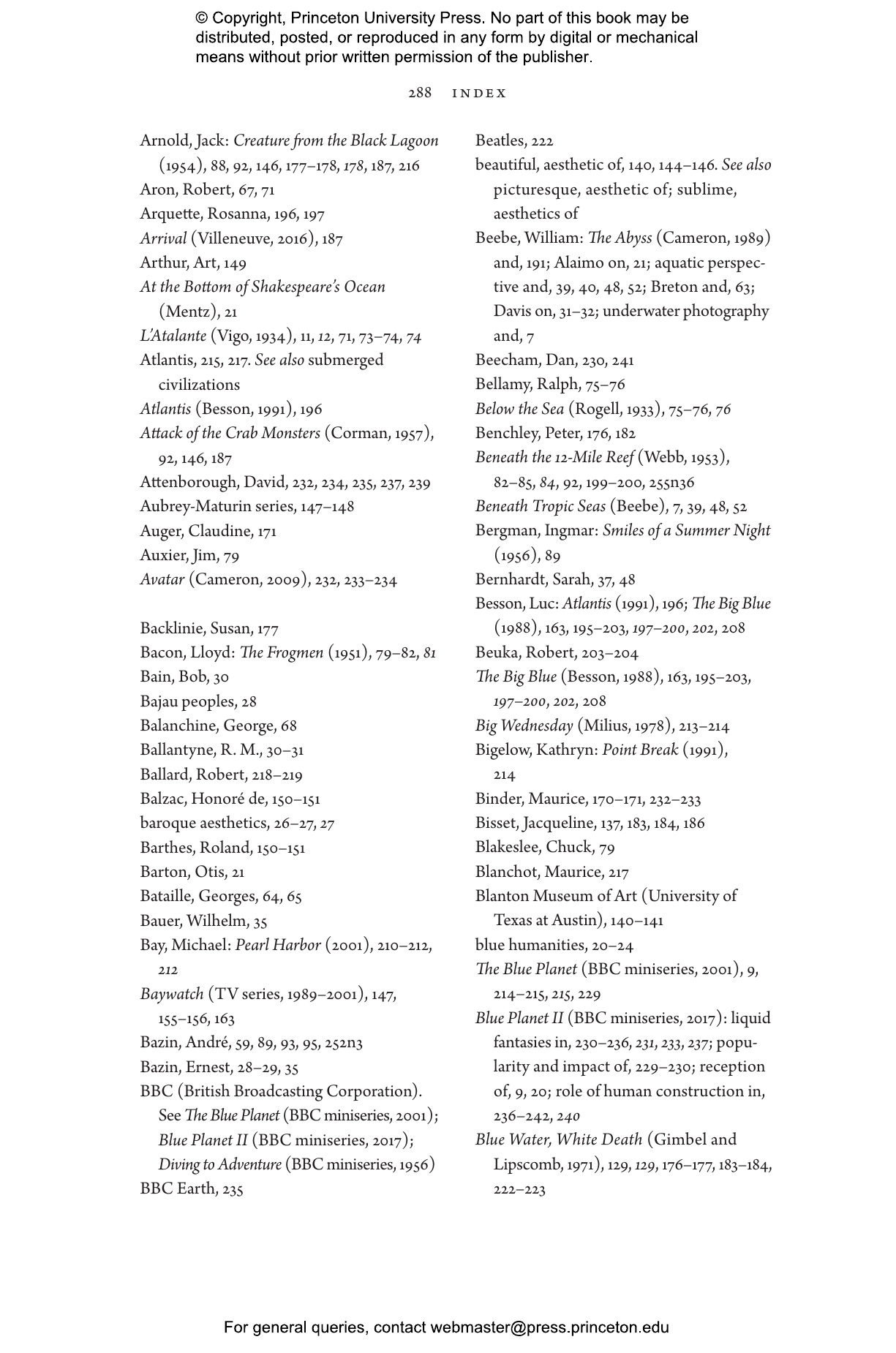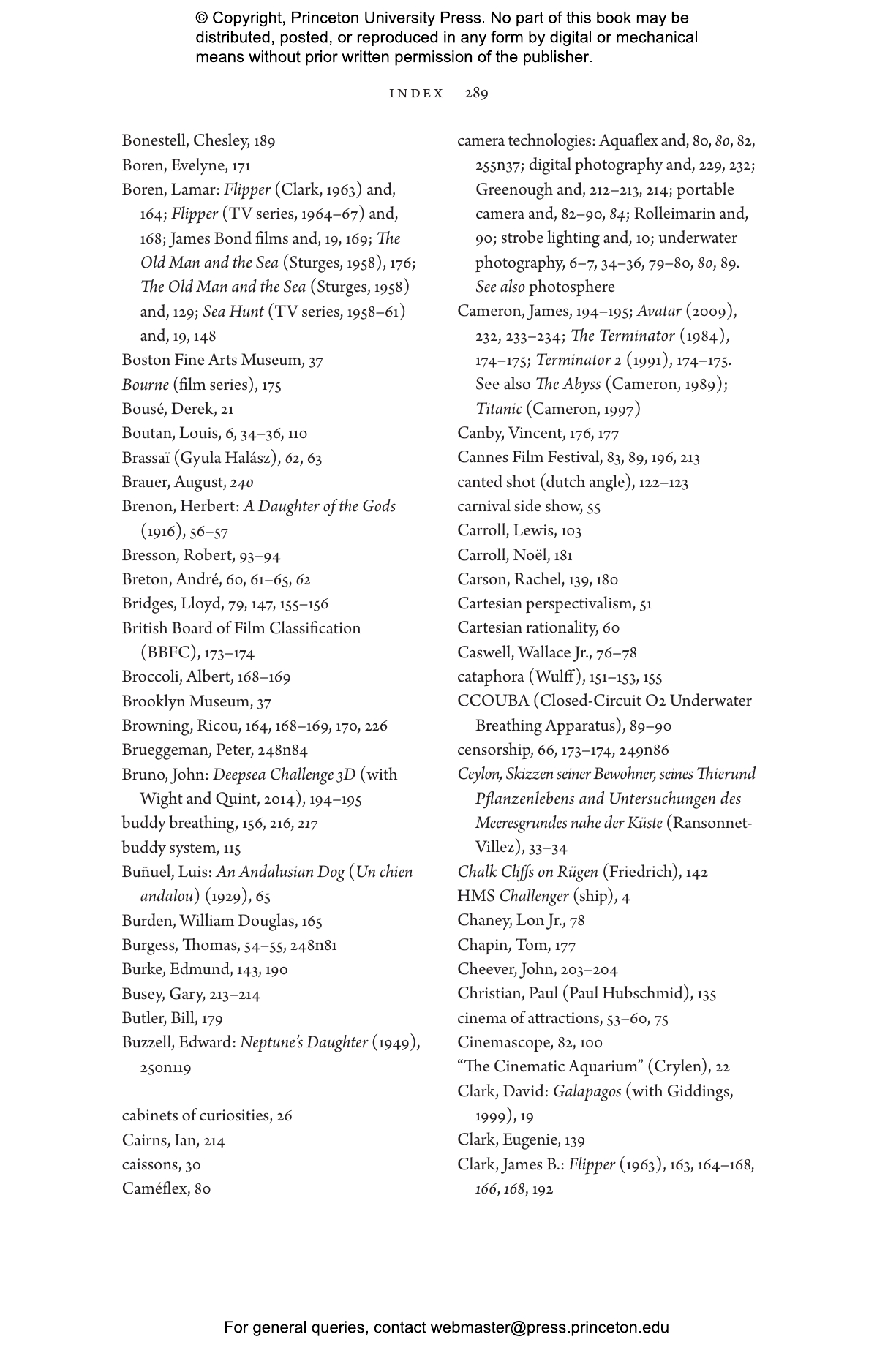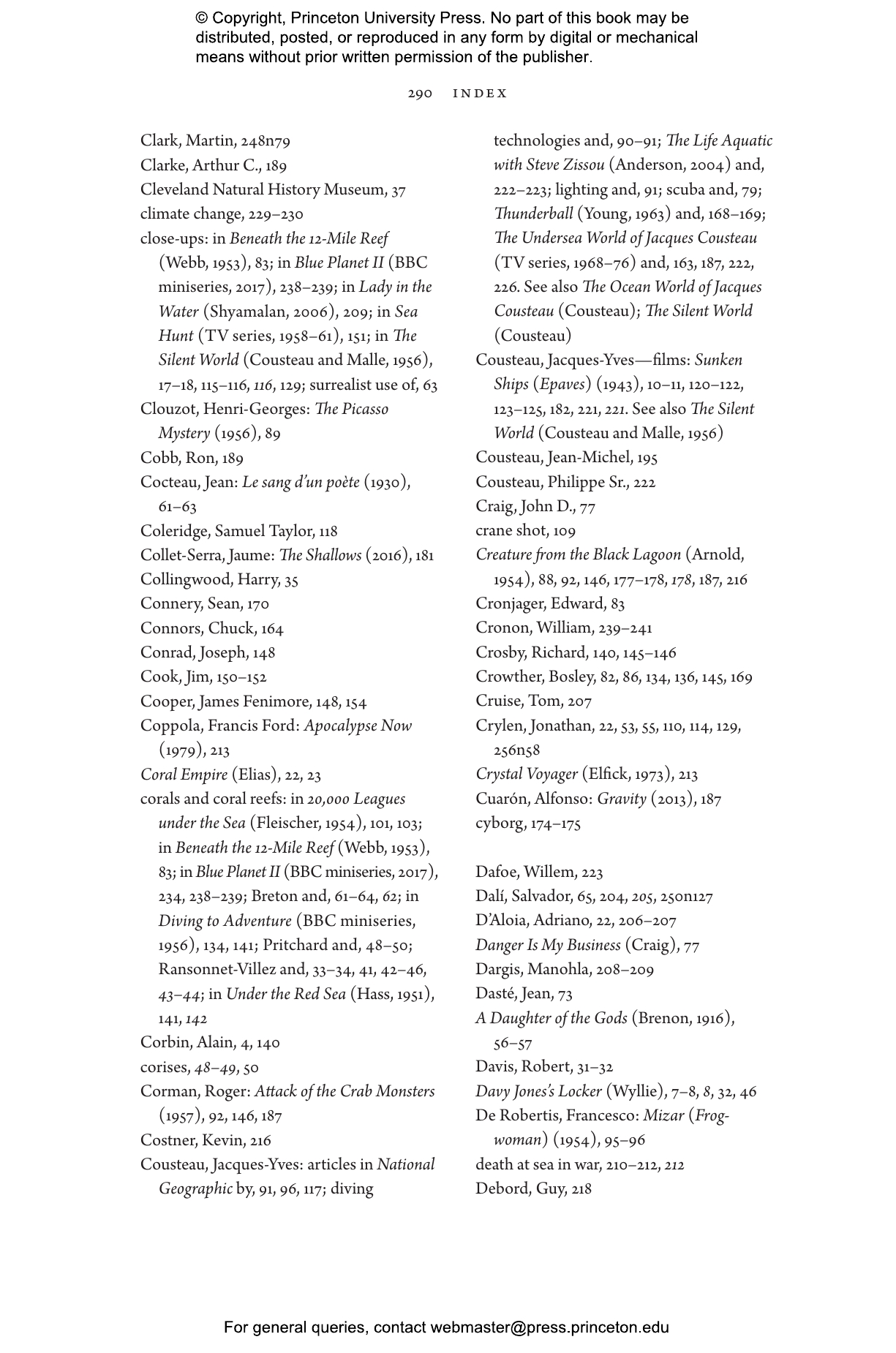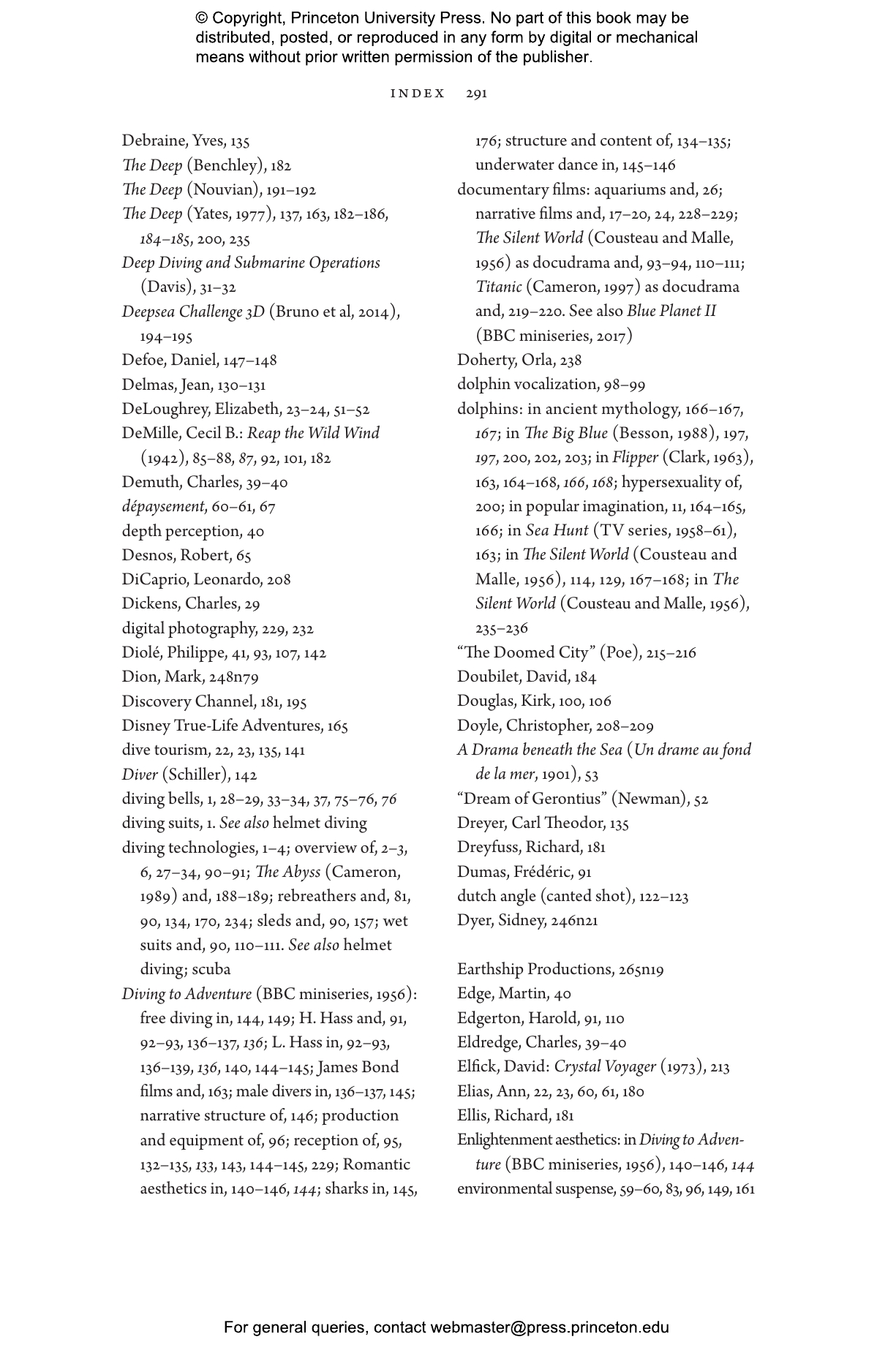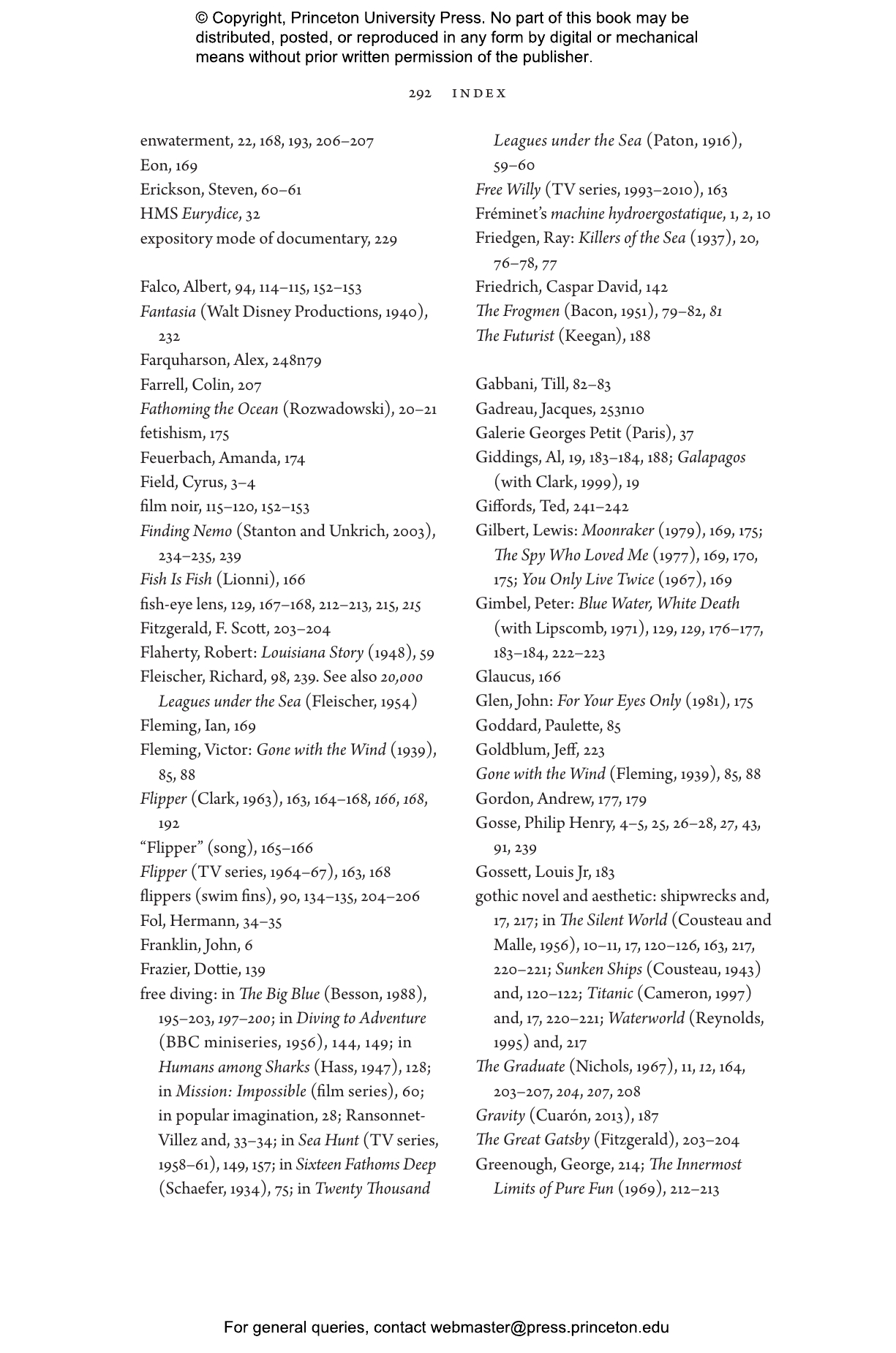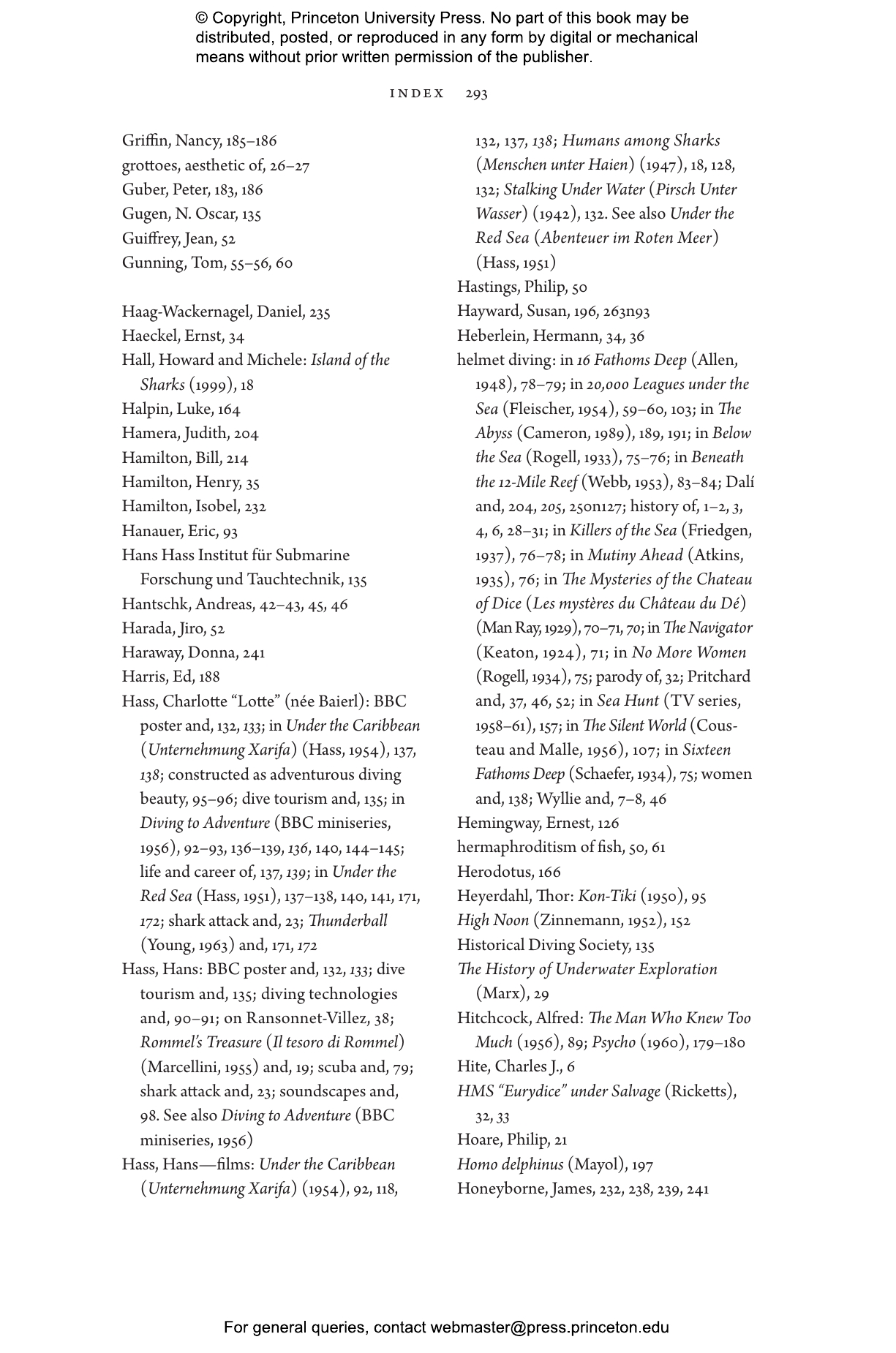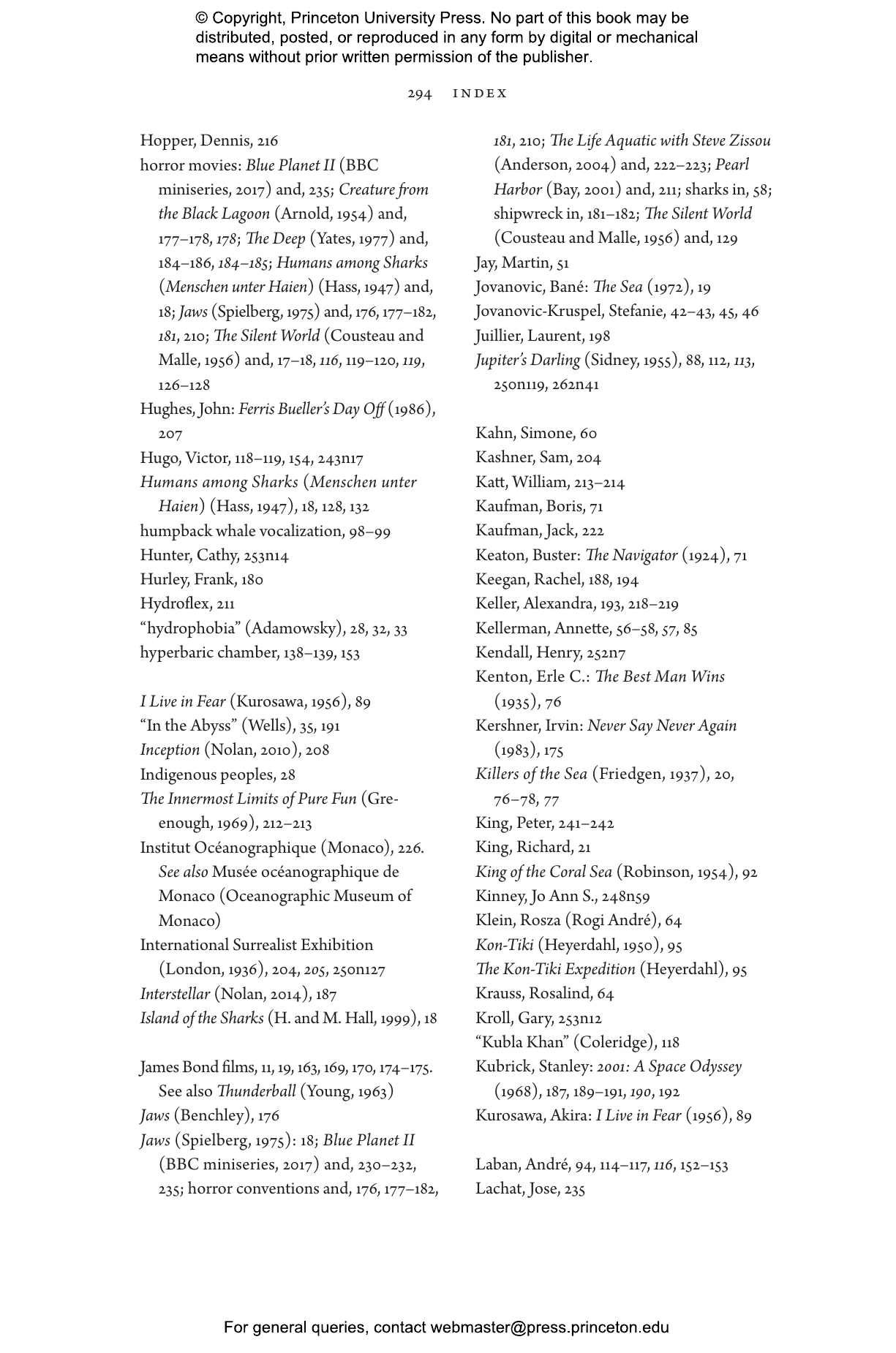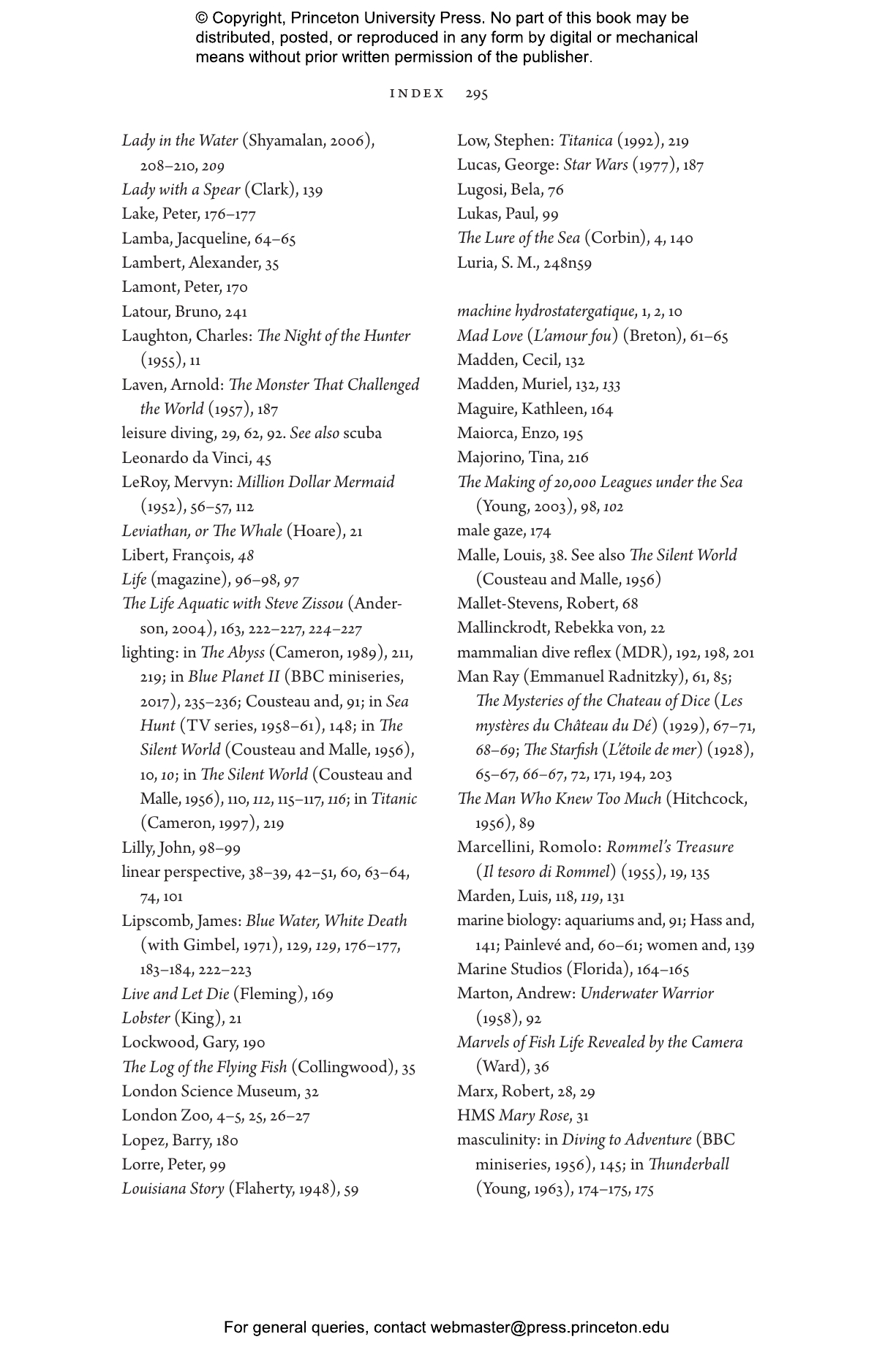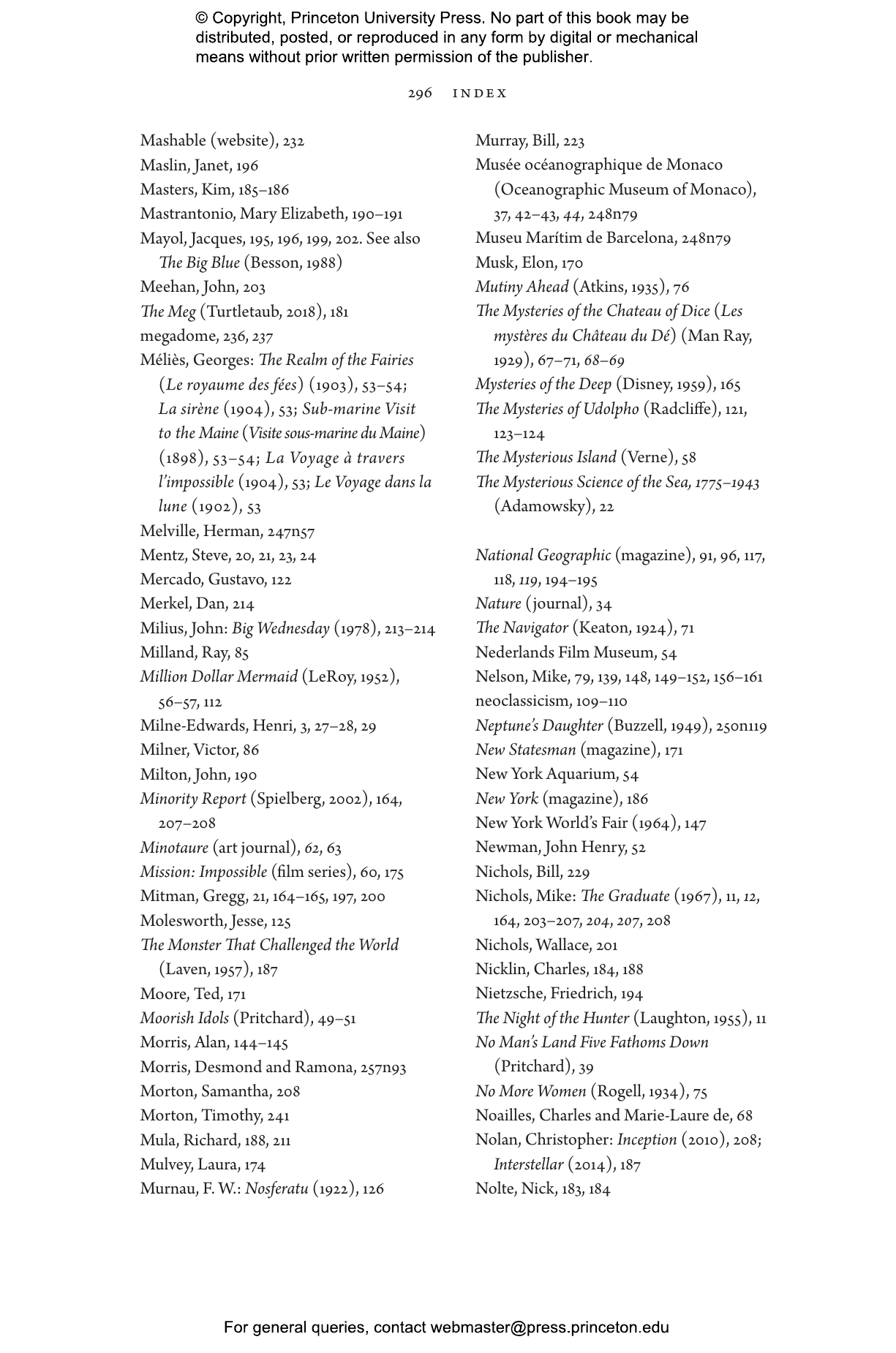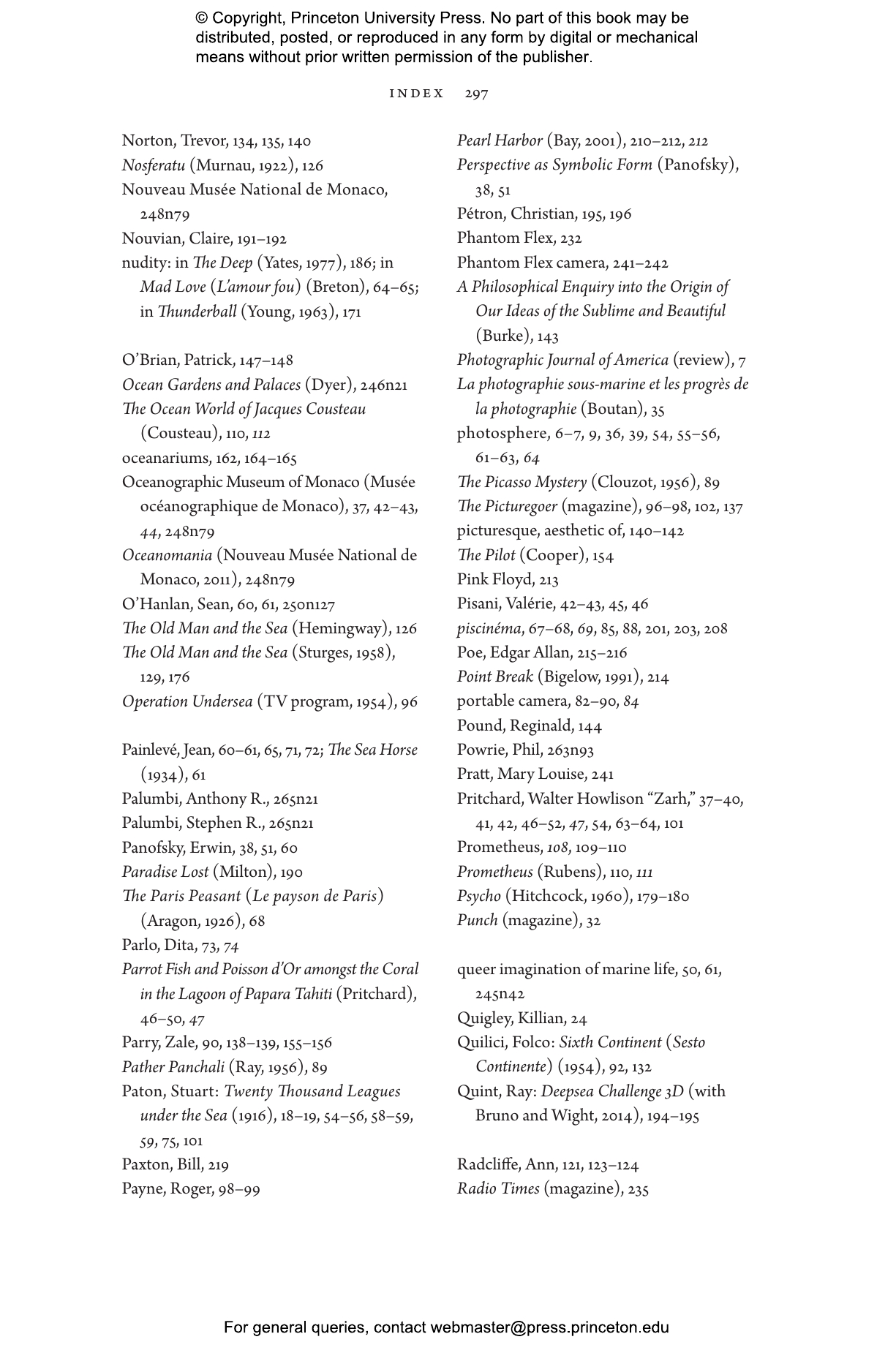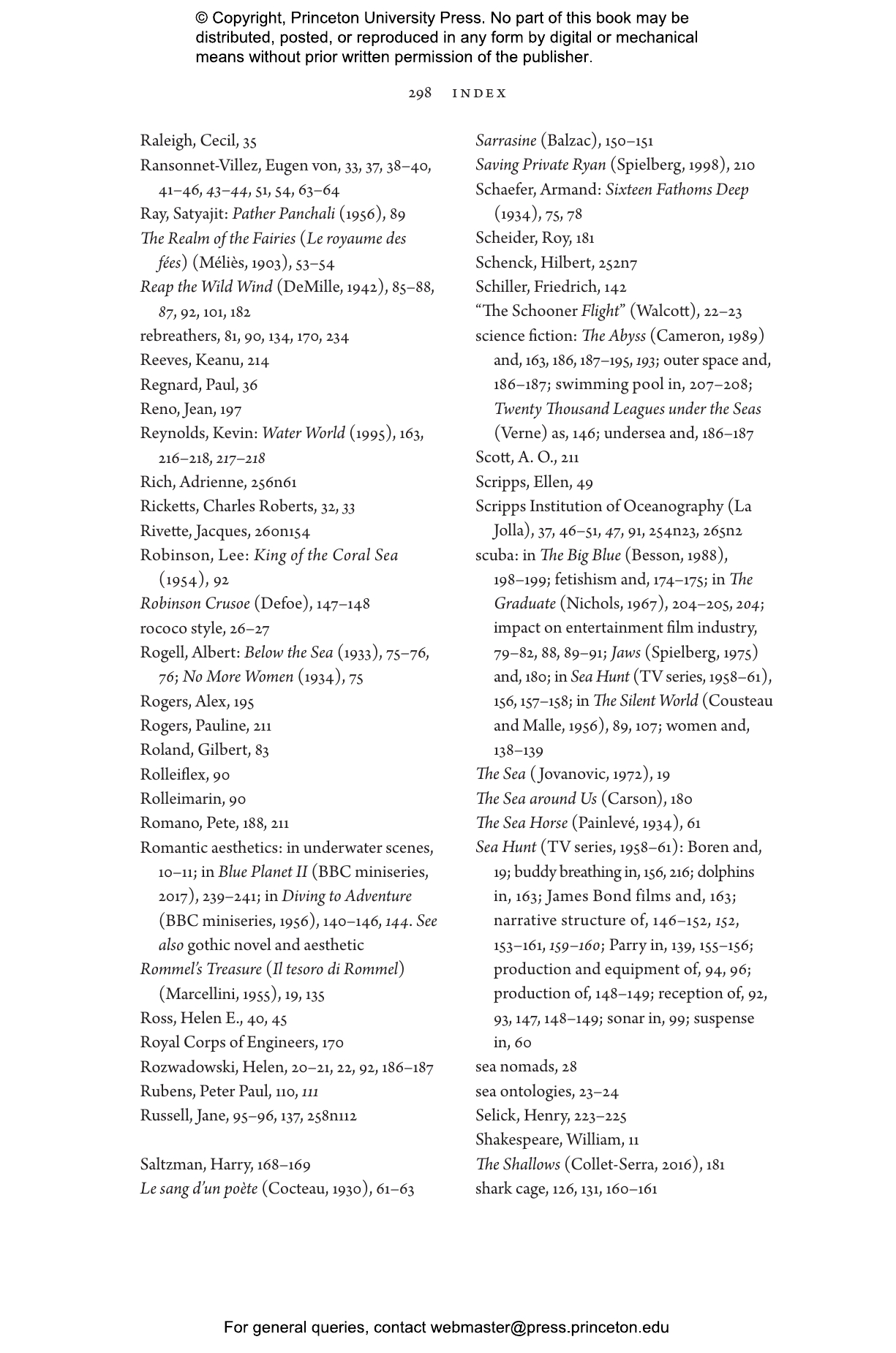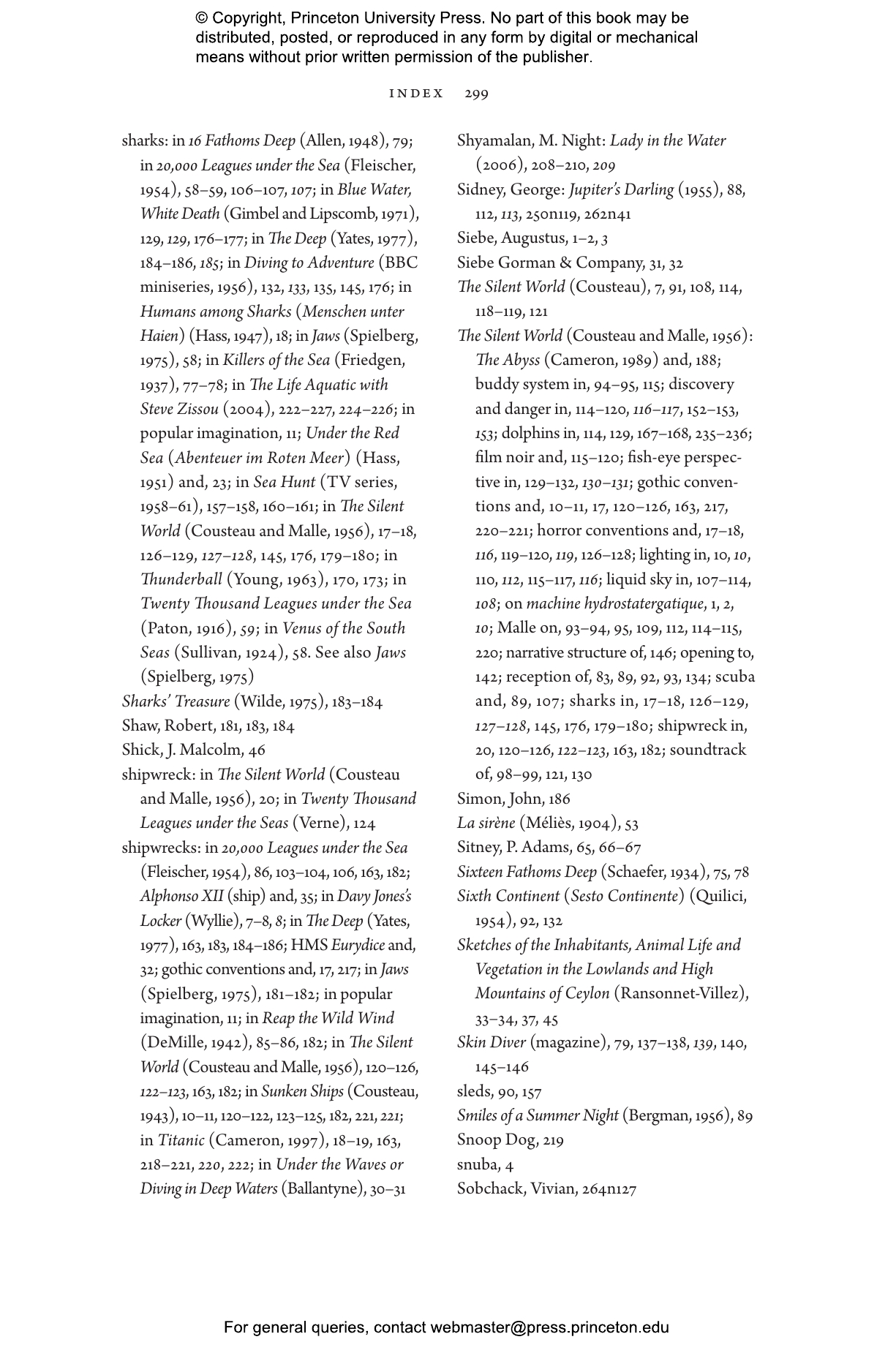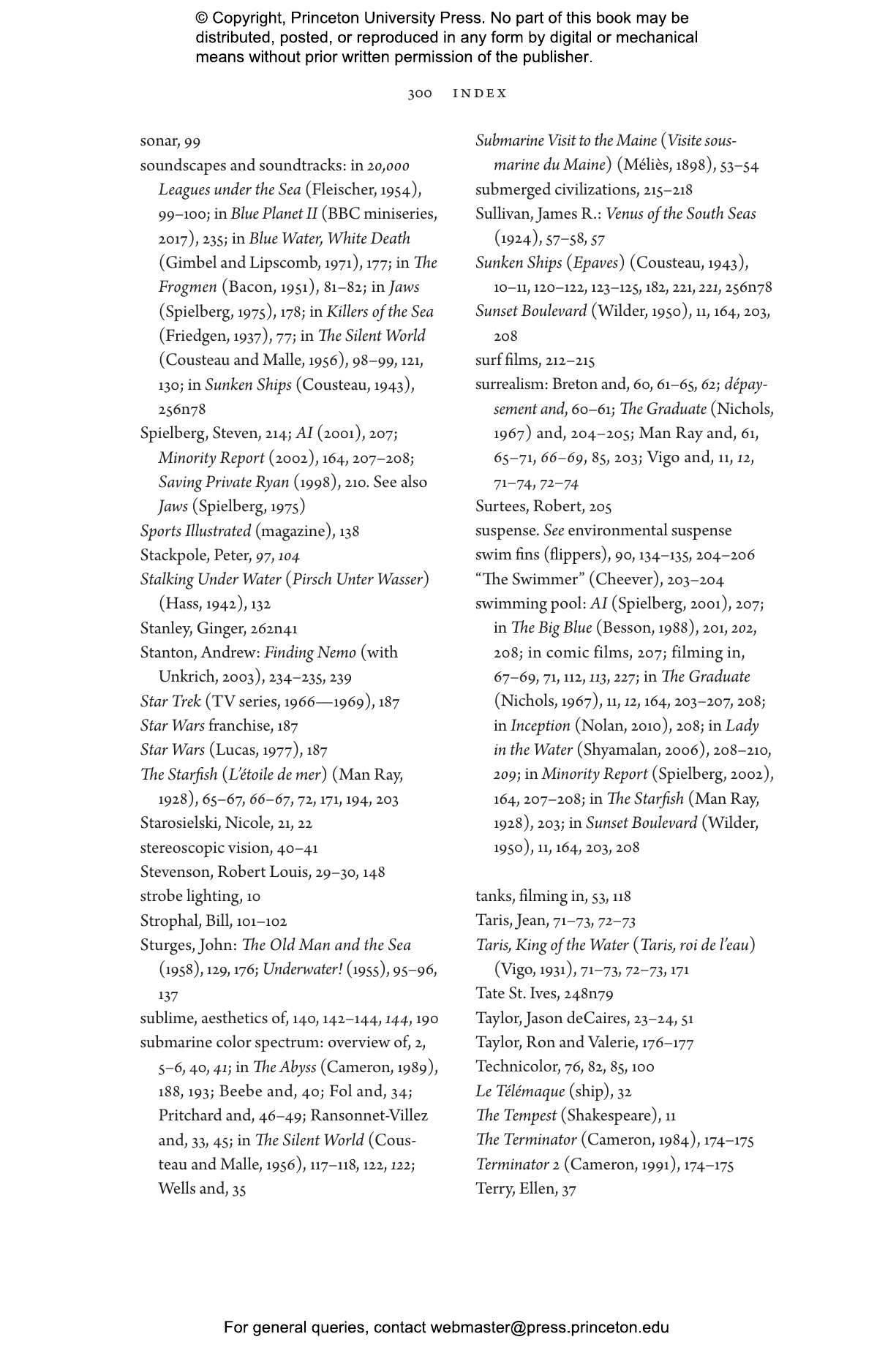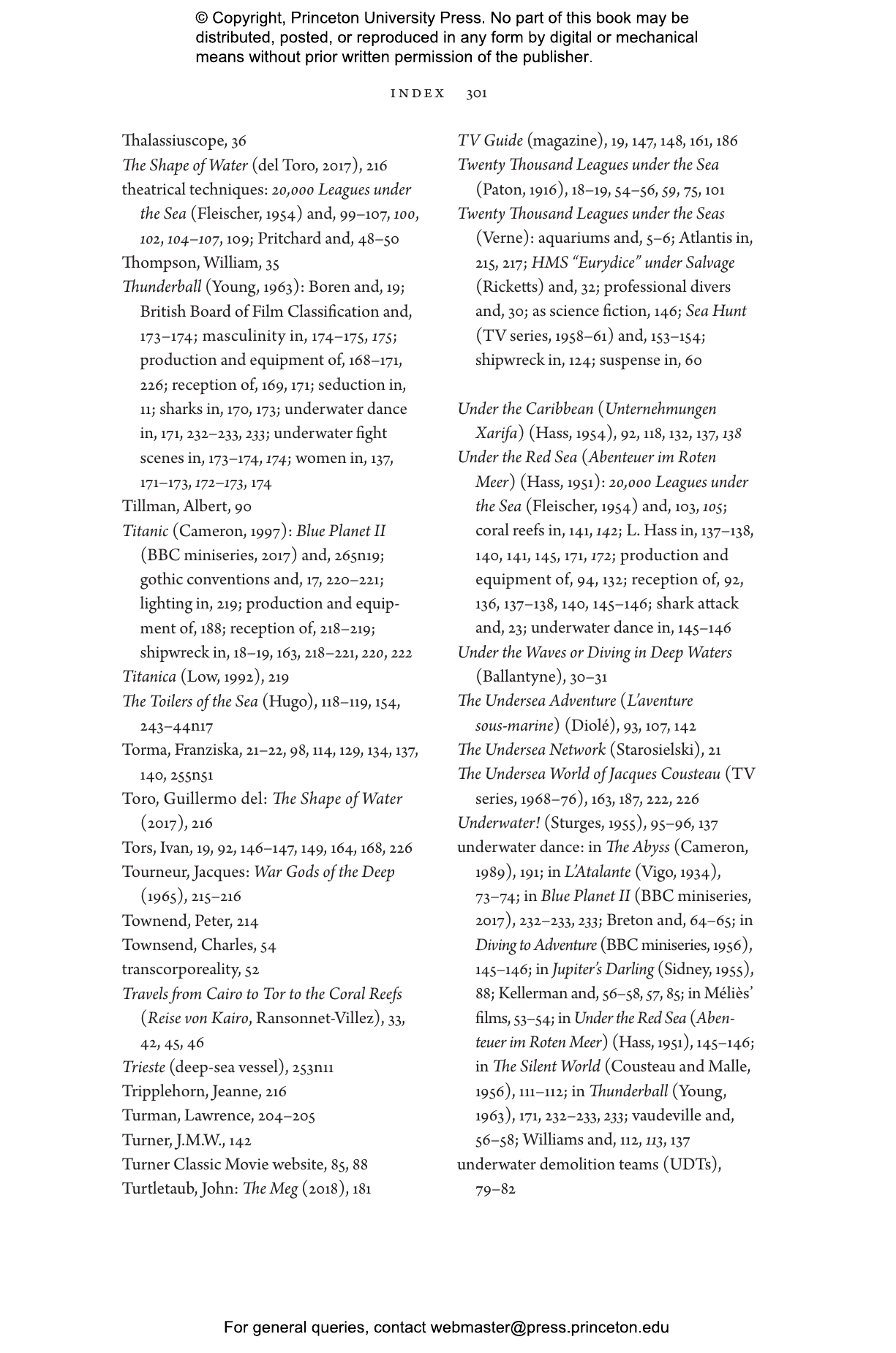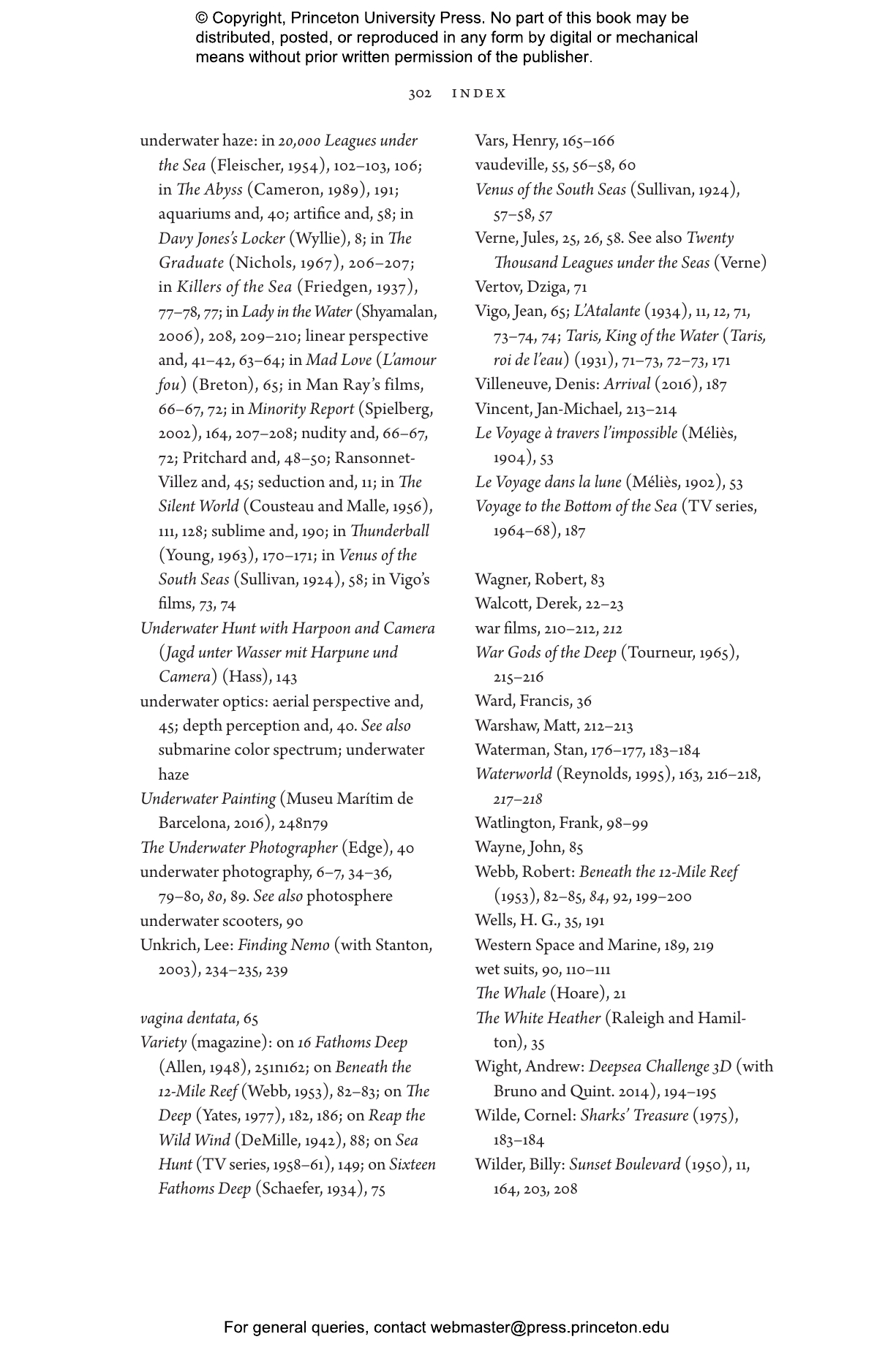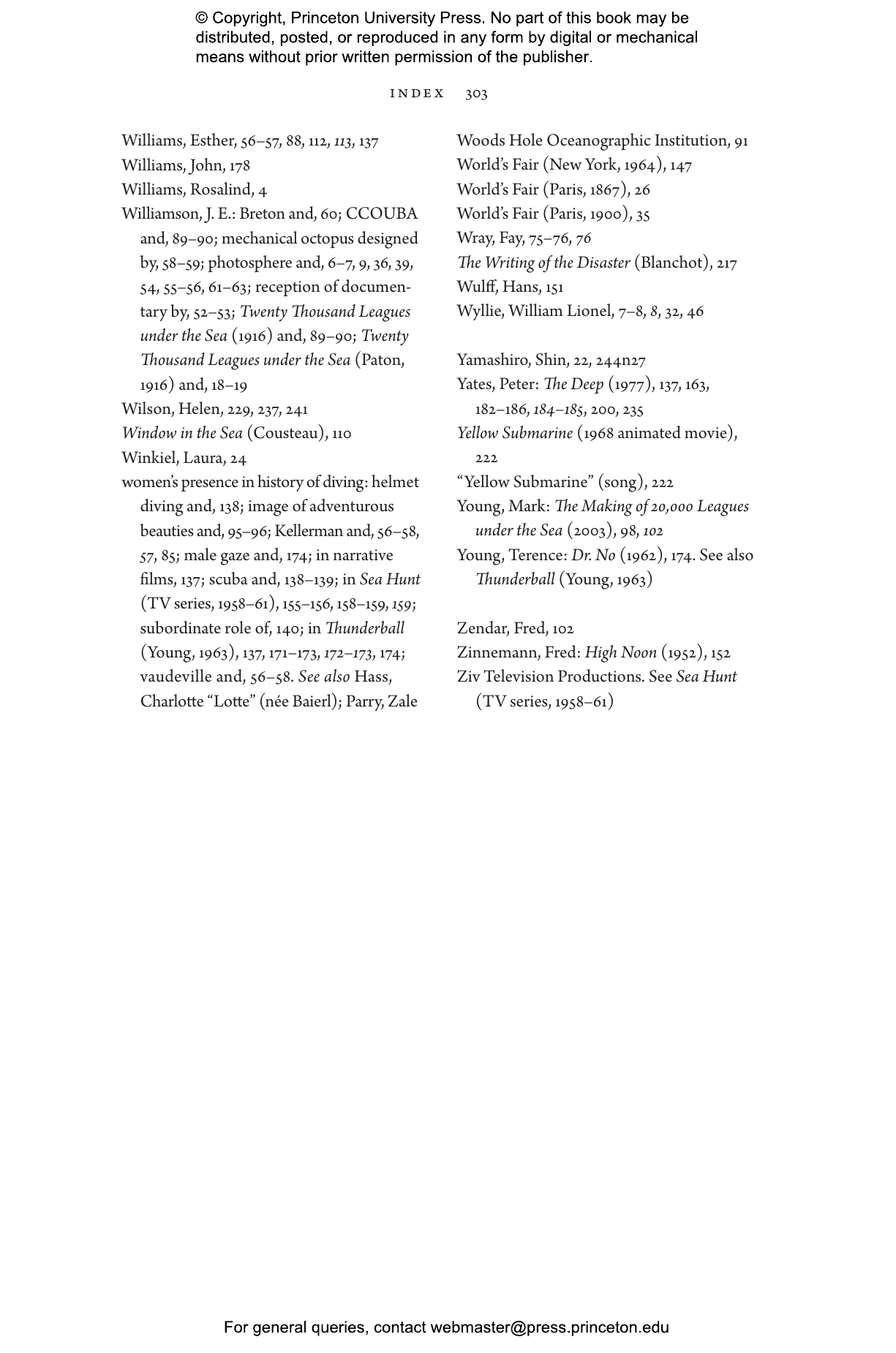In The Underwater Eye, Margaret Cohen tells the fascinating story of how the development of modern diving equipment and movie camera technology has allowed documentary and narrative filmmakers to take human vision into the depths, creating new imagery of the seas and the underwater realm, and expanding the scope of popular imagination. Innovating on the most challenging film set on earth, filmmakers have tapped the emotional power of the underwater environment to forge new visions of horror, tragedy, adventure, beauty, and surrealism, entertaining the public and shaping its perception of ocean reality.
Examining works by filmmakers ranging from J. E. Williamson, inventor of the first undersea film technology in 1914, to Wes Anderson, who filmed the underwater scenes of his 2004 The Life Aquatic with Steve Zissou entirely in a pool, The Underwater Eye traces how the radically alien qualities of underwater optics have shaped liquid fantasies for more than a century. Richly illustrated, the book explores documentaries by Jacques Cousteau, Louis Malle, and Hans Hass, art films by Man Ray and Jean Vigo, and popular movies and television shows such as 20,000 Leagues Under the Sea, Creature from the Black Lagoon, Sea Hunt, the Bond films, Jaws, The Abyss, and Titanic. In exploring the cultural impact of underwater filmmaking, the book also asks compelling questions about the role film plays in engaging the public with the remote ocean, a frontline of climate change.
Awards and Recognition
- A Choice Outstanding Academic Title of the Year
Margaret Cohen is the Andrew B. Hammond Professor of French Language, Literature, and Civilization at Stanford University, where she teaches in the Department of English. Her books include the award-winning The Novel and the Sea and The Sentimental Education of the Novel (both Princeton), as well as Profane Illumination: Walter Benjamin and the Paris of Surrealist Revolution. She is also the coeditor of The Aesthetics of the Undersea and general editor of A Cultural History of the Sea. She lives in Stanford, California.
"A comprehensive, historical examination of underwater films and television shows that reflected the public’s interest in sea fantasies during three periods. . . . Insightful."—Choice Reviews
"Margaret Cohen’s comprehensive research and skilful writing makes this book a fascinating read. . . . The Underwater Eye is a very well written and researched book that takes us comprehensively through this remarkable journey."—Jeff Goodman, Scubaverse
“Margaret Cohen’s eagerly awaited book juxtaposes three twentieth-century innovations: scuba, underwater film, and modernist artistic experimentalism. Her deft analysis of undersea images uses the experience of immersion, including blurred vision and near-weightlessness, to reframe conventions of gothic narrative, film noir, the Romantic sublime, and heroic epic. Fans of dive movies and scholars of the blue humanities will find much of value in this brilliant and engaging book.”—Steve Mentz, author of Ocean
“Most people who have seen the underwater world have seen it, and loved it, in movies. To discover those pioneering underwater productions, the passionate artists that invented the cameras, and the magic of capturing seascapes on film, take a breath and dive into The Underwater Eye. The 'underwater you' will love it.”—Stephen R. Palumbi, coauthor of The Extreme Life of the Sea
“Extensively researched, The Underwater Eye deftly assembles previously scattered scenes and disconnected glimpses of underwater filmmaking into a lush, precise, and coherent cultural history. This is an admirable, enticing, and essential volume.”—Stacy Alaimo, author of Exposed: Environmental Politics and Pleasures in Posthuman Times
“An encyclopedic account of representations of the undersea in film, The Underwater Eye focuses on questions arising from the media that allow this hidden world to be viewed. To what extent is the reality of oceanic nature served or distorted by underwater cameras, lighting, and artificial locations? What would we see if there were no machines to clear the eyes or replenish the lungs of the filmmakers? Cohen offers myriad examples to complicate the answers to these questions in this searching and exciting book.”—Jonathan Lamb, author of Scurvy: The Disease of Discovery
